#with years of acting and improv classes and experiences
Explore tagged Tumblr posts
Text
Tags from @kingstooth

D&D going mainstream really messed up people's expectations cause chances are you're not gonna find a DM who has the free time, talent and resources to put on a tale that competes with Tolkien. you're gonna find your friend's roommate Phil who's read one of the manuals a few times and has to pause to get a calculator out to figure out how much damage your attack did and his story is blatantly ripping off a dragon age 2 side quest
#please im begging yall to remember this#we're just people#folks like aabria iengar matt mercer and brennan lee mulligan are professionals#with years of acting and improv classes and experiences#and they are undeniably genius amazing storytellers#but thats not really super the point of home games#home games are meant to be fun for everyone#and sometimes fun is telling#deep introspective stories and developing your characters#and sometimes its spending a whole session setting up a cave as a diner so one of the players can romance an elder blue dragon
53K notes
·
View notes
Text
cold kisses
part 0.05. intros.
NOW LIVE . . . THE MENTAL ASYLUM WAITLIST
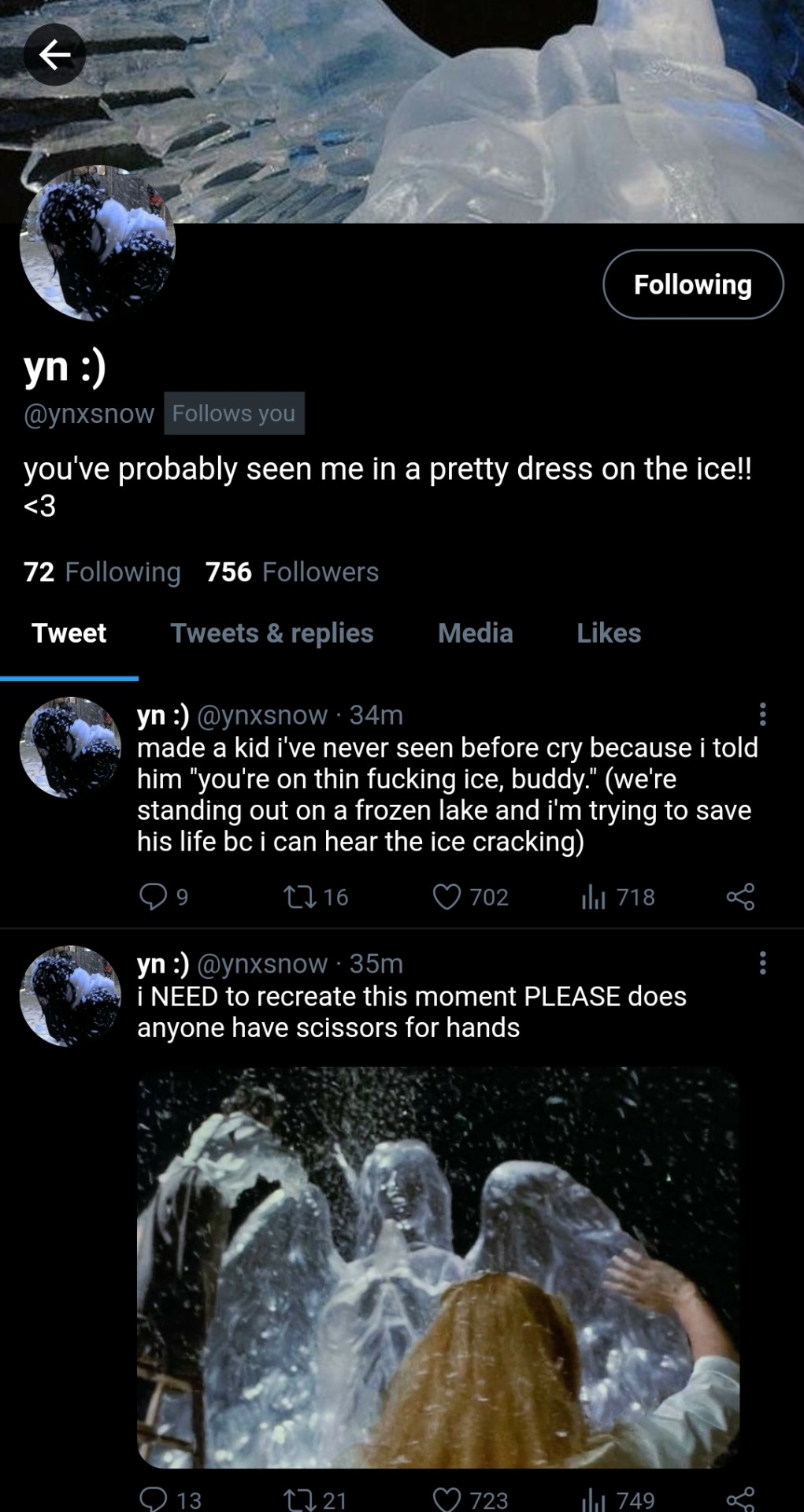
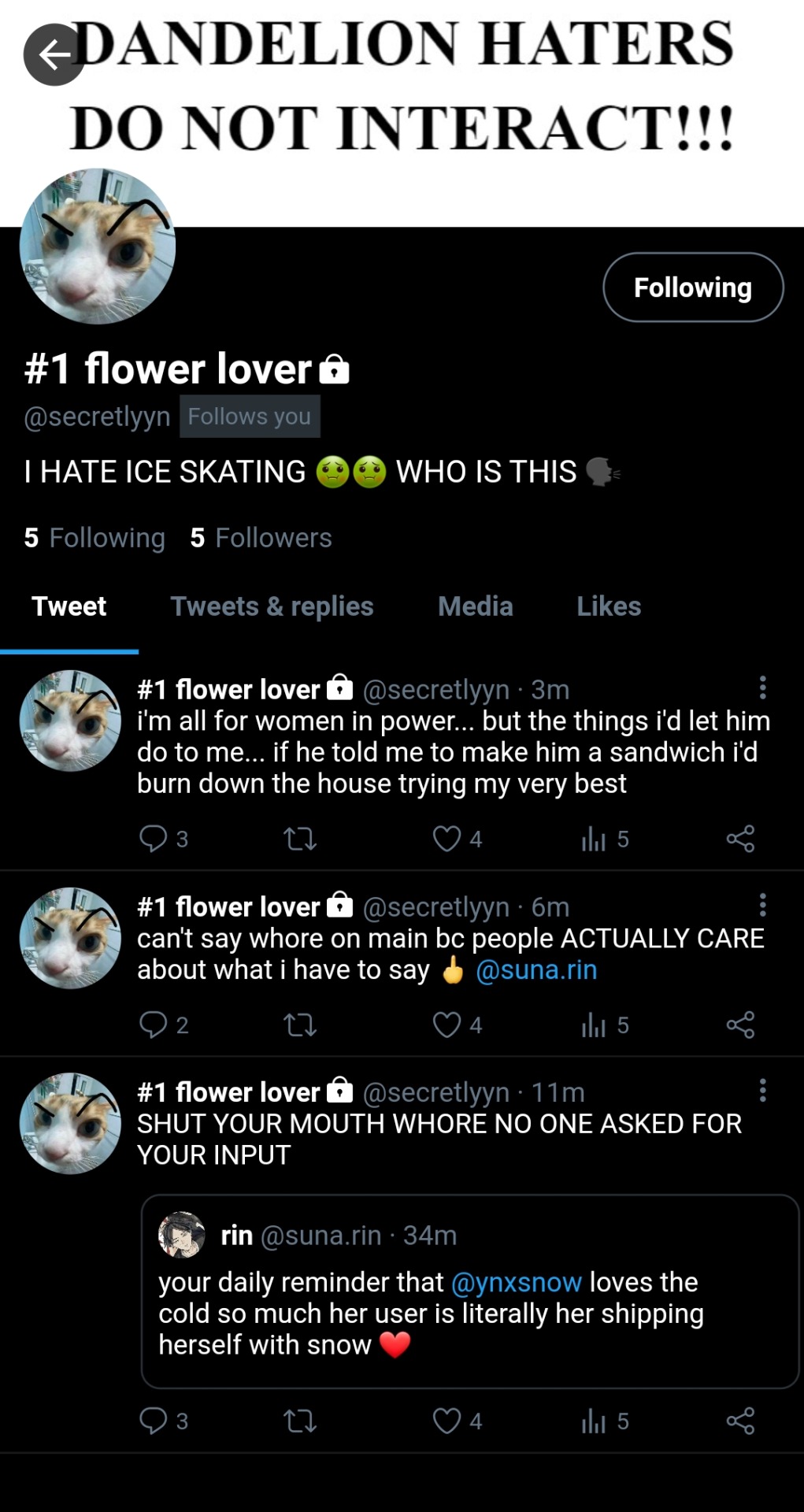
l/n y/n ⋆꙳•❅*‧ ‧*❆ ₊⋆
figure skater and second year college student!! majoring in nutrition and trying her best but she’s definitely hanging onto sunarin for life :) is roomates with kenma bc they’re the only two out of all their friends that could afford splitting the rent for a nice apartment off of school property. she’s not that much richer than any of her other friends but when he asked her if she wanted to be his roommate she couldn’t stop herself from saying yes. she might be a little bit obsessed with winter and snow but it’s because she’s just spent so much time on the ice and in the cold. graduated from nekoma high and has remained good friends with kuroo and kenma. in high school she was like a part-time manager, popping in to help whenever she could and happily sat on the sidelines alongside their coach during games which introduced her to other volleyball players that she became closer with. as of now, she’s good friends with lots of other athletes who are struggling with her through nutrition while kuroo and kenma laugh at them from their distant majors.
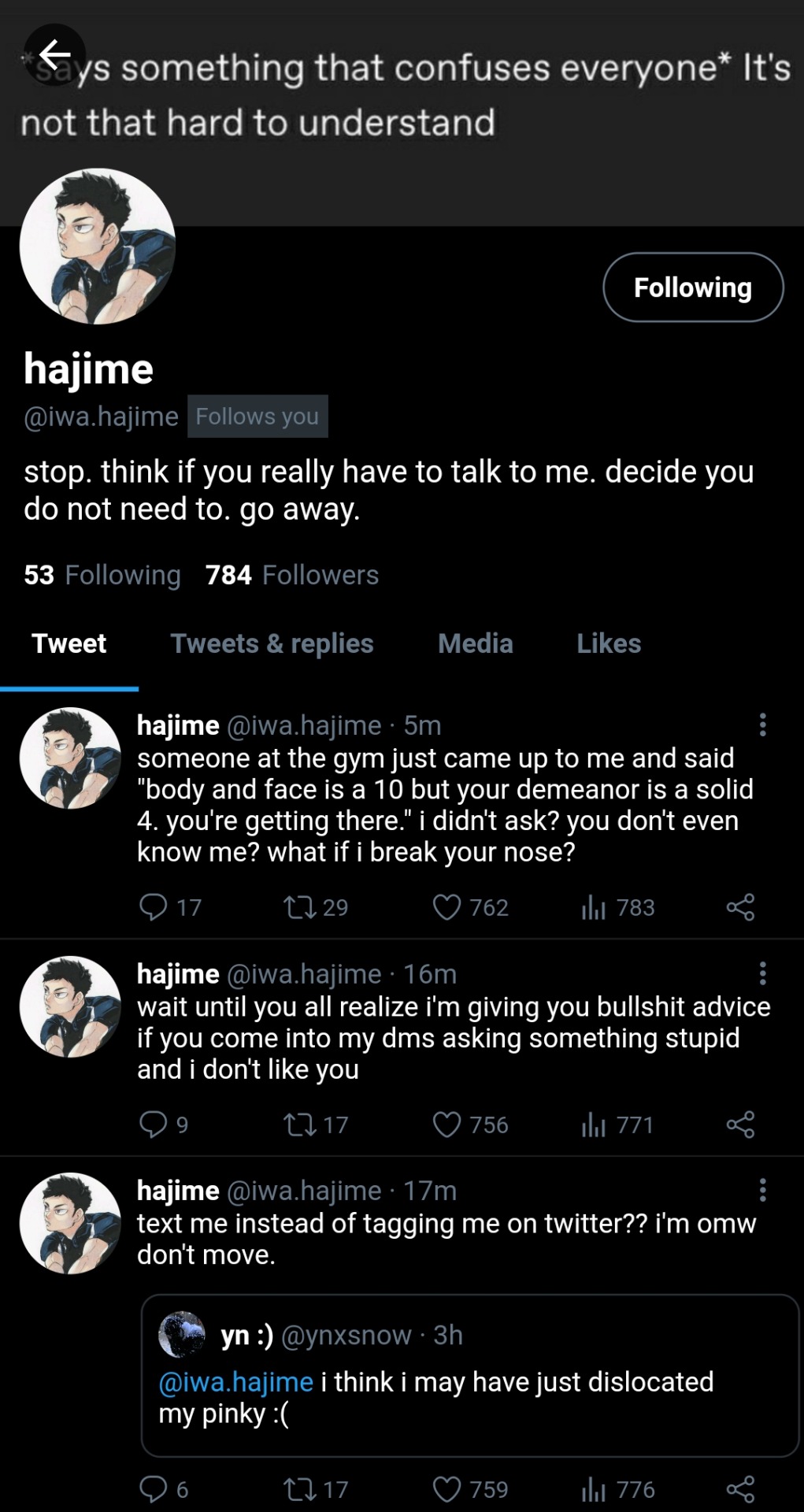

iwaizumi hajime & suna rintaro ⋆꙳•❅*‧ ‧*❆ ₊⋆
hajime
third year in college studying sports science to become an athletic trainer. having all athletes for friends has its pros and cons 💀 he gets a lot of first-hand experience from helping them improve and take care of themselves but now every time they have an injury they come to him instead of an actual professional. y/n especially has latched onto him, coming to him for medical, athletic, and really advice on anything. designated caretaker of his group of leash kids. acts like he hates everyone but if one of his friends asked him for help he’d 100% drop everything to help them (at least for y/n, he might finish what he’s doing before helping noya). his shared dorm with suna is very clean and calm, they’ve worked very hard to have the most civilized room that their friends often crash at. (y/n has showed up multiple times to stay the night and get what feels like advice from her two manly parents with matching emotionless faces).
rin
second year in college staying afloat in nutrition sciences, not absolutely acing his classes but is far from failing. middle blocker for the college volleyball team. takes his job as the friend group’s court jester very seriously. did fight and win against noya for the title. has the most horrendous photos of everyone and will remind everyone of their existence periodically. also the runnerup caretaker of the group and actually has solid advice, he’s just not usually in a serious mood. hit it off with y/n immediately during a volleyball game between inarizaki and nekoma at nationals. he was taking pictures of atsumu dying on the floor after the game and looked up to see her literally doing the same of kenma who had flopped down to take a nap.
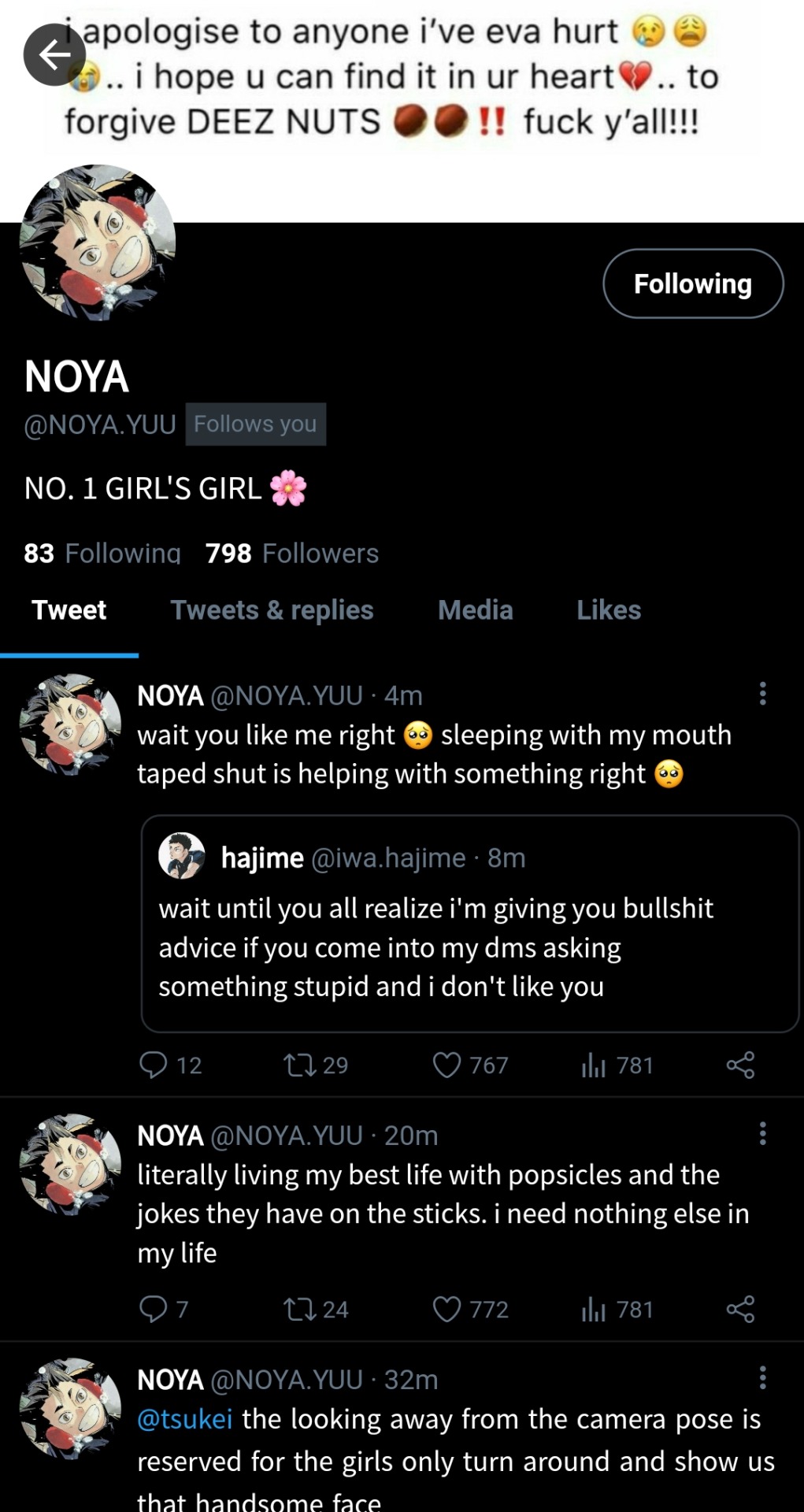

nishinoya yuu & tsukishima kei ⋆꙳•❅*‧ ‧*❆ ₊⋆
noya
second year in college! dropped out of nutrition sciences because he wanted to be with his friends but not even sitting next to tsukishima was preventing him from failing classes that he was already retaking (he’s lucky he’s literally the best libero out there and his scholarship is paying for everything). is now a loner communications major (with kageyama and hinata lmao) but still finds the time to visit his friends and sometimes walk with y/n to her class. he’s literally the best supporter (and enabler) and never fails to greet y/n with a popsicle after buying one for himself <3 loves to bully and tease tsukishima about everything and anything, definitely learned to bite him from hinata :)
tsukishima
first year in college, thankful that his classes are finally peaceful without noya next to him every class (although he still has to return to his dorm that he shares with the feral demon every night). middle blocker for the vball team as well but he’s still a newbie 😞 is very adamant about not being considered a leash kid but then interacts with noya and disproves his own points. was basically adopted into y/n’s friend group the moment he got into college because suna and her made fun of him the first time they saw him in high school and then quickly snatched him before anyone else could befriend him.
m.list | next
#kozume kenma#kenma kozume#kenma#kenma x reader#kenma smau#haiykuu smau#haikyuu x reader#haikyuu#hq#hq x reader
173 notes
·
View notes
Text
Something ive noticed about a lot of people who play dnd (myself included) is that… they arent really playing dnd.
I don’t mean that in the - they’ve homebrewed the system to the point where they are basically playing a completely different game. i mean it in the way that dnd is less of a game and more of a tool or frame work to tell improve stories with friends. Thats why so many tables have a significant amount of homebrew rules or play it loose with the rules - because dnd is secondary to the act of telling a story.
Unfortunately, dnd wasn’t built for such a narratively focused sandbox. It was built around dungeons and adventuring and violence in general - an aspect that is only a fraction of many stories that dnd is used to tell.
I think that is why so many people are resistant from trying other ttrpg systems that may give them a better player experience. They dont play dnd to play dnd but they dont even realize that. The game is secondary so why does it matter what game they play? Everyone at their table is already versed in dnd so they can make it work as a framework even if its trying to fit a square peg into a round hole.
This is something ive been thinking about a lot while making my ttrpg Tales from the Aether as I am inspecting my own view and experience with dnd and what i enjoy about it versus what could be done better. Why do me and my friends play dnd? To hang out and tell stories. Dnd happens to be the system i knew at the time we started and thus it is the one we used. But there is nothing particular about dnd that supports this goal while there are many things that hold us back - such as characters archetypes and classes being so ridged and having practically zero guidance for running the game outside of combat or adventuring. This is where homebrew comes in.
Ironically thats the entire premise of Tales from the Aether. I started making it years ago with the idea that this system is specifically a framework for people to tell improve stories with friends. That is the whole point. All of the mechanics revolve around giving players the tools to do what they want while the rules act more as a form of in universe world building (like a hard magic system) than actual rules.
The reason why so many people who play dnd are hesitant or straight up refuse to try out other ttrpgs is because the game is secondary. Its a tool. Its a framework that they can build off of to create the experience that they want. Its familiar so they know how to bend it, what parts to chip off or expand, to give them what they want. A new ttrpg, even if its one that gives them everything they want in a ttrpg, is unfamiliar and thus not worth investing in when they already have something that works well enough.
Idk i may be way off base here but from my own experience and from watching live plays and reading people’s takes on dnd and playing the game… thats kinda the conclusion ive come to.
#dnd#dungeons and dragons#ttrpg#ttrpg community#just some thoughts ive been moling over for a while…
338 notes
·
View notes
Text
F1 DRIVERS AS TEACHERS
Max Verstappen - Geography Teacher

— Randomly quizzes students about which country is in which continent
— However he can take jokes
— Randomly trauma dumps (one student even asked him if they should call Logan)
Sergio Perez - Spanish Teacher #1

— " You used Google translate for that... tsk tsk.. "
— Oral assessments every friday no questions asked
— He and Fernando talk in Spanish in the teachers lounge to avoid eavesdroppers
Charles Leclerc - Music Teacher

— Has a pictures of his dog as his pfp on Google
— Forces everyone to listen to his newest piece before class ends
— Rumoured to have kissed Max outside of school (he denies it)
Carlos Sainz - Spanish teacher #2

— Seen teasing Lando during lunch and blushing
— Hates basically every student who refuses to learn any Spanish
— His favourites tease him about Lando in Spanish and he curses at them to stop
Lewis Hamilton - Art Teacher

— Really passionate about his job
— " Did you hear about Logan and Oscar? " " WHAT?.. oh... what..? I can't discuss this with my students. "
— He actually gives you tips on how to improve your work and doesn't mess up your work by drawing over it!
George Russell - English teacher #1

— " Girls can we please put the eyelash curler away. And the makeup brush... and the hairbrush, gosh how do you fit this all into your pockets!? "
— Deffo dating Alex but doesn't admit to it
— Homework every single week, will report to your parents if not handed in
Lando Norris - PE teacher
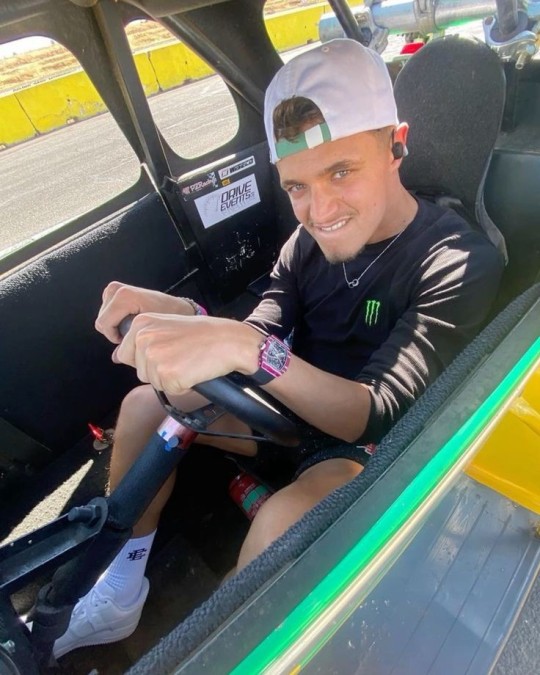
— He doesn't know himself how he got the job
— Basically lets the students play dodgeball all year
— Giggles and kicks his feet whenever Carlos pops by to say hi
Oscar Piastri - English teacher #2

— Has been seen napping in the teachers lounge multiple times, Logan sometimes acts as his pillow
— " Guys can we not.. Nando is going to kill me if he finds out I'm giving out sweets. "
— Voted most gay teacher by the students
Fernando Alonso - Head of Year

— Brings the teachers snacks to their lessons
— " What the skibidi .. " " Mr. Alonso never say that again. "
— He deffo doesn't have favourite teachers (wink wink)
Lance Stroll - Woodwork teacher
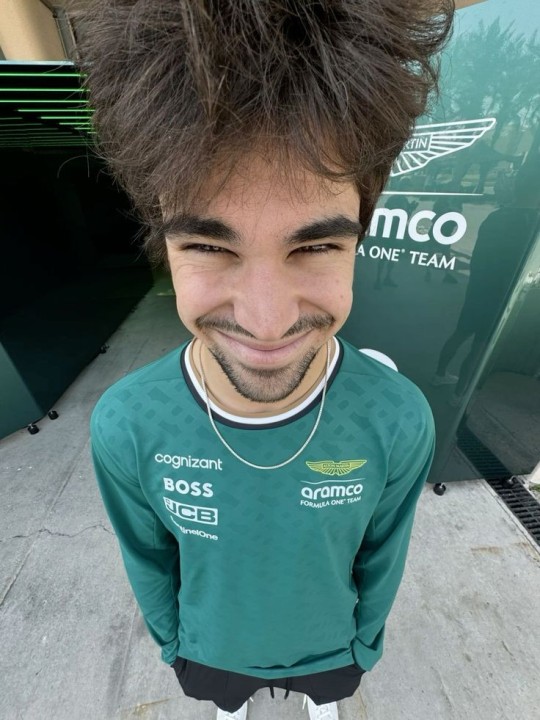
— Definitely not suited for his job
— Just eats his lunch in the middle of lessons because he doesn't wanna be with the other teachers (Estaban isn't there)
— Watches on as students try and hammer in screws and does nothing about it
Daniel Ricciardo - Science Teacher
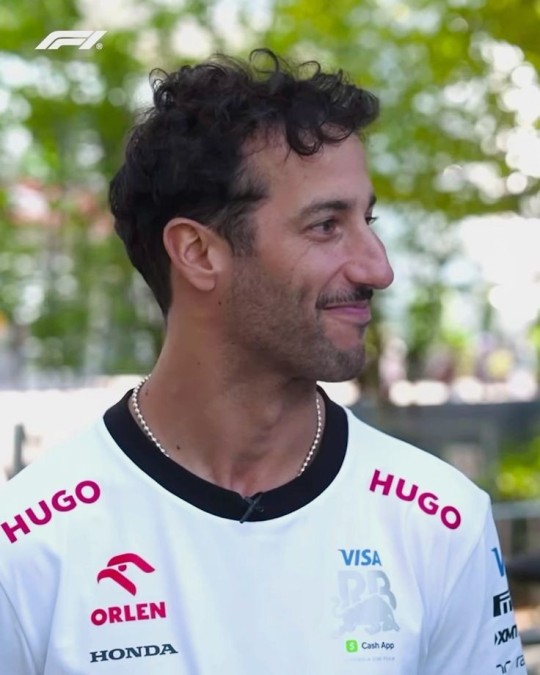
— He only applied because he wants to do cool experiments
— " Follow the instructions. " " Sir these are in french.. " " uhmm.. does anyone wanna watch the martian? "
— Everyone loves him
Yuki Tsunoda - Food Tech
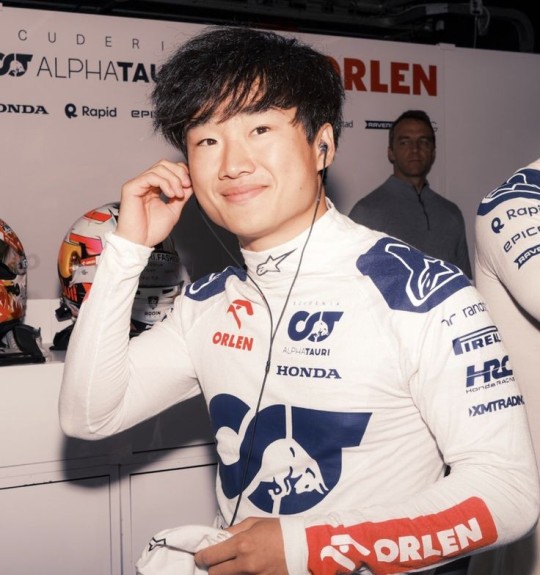
— " That looks like if Mr. Norris tried cooking. "
— Randomly gives out snacks while he's doing instructions
— Disses the other teachers but when someone mentions Pierre he gets all excited asking how his lessons are going
Kevin Magnussen - History/Religion Teacher
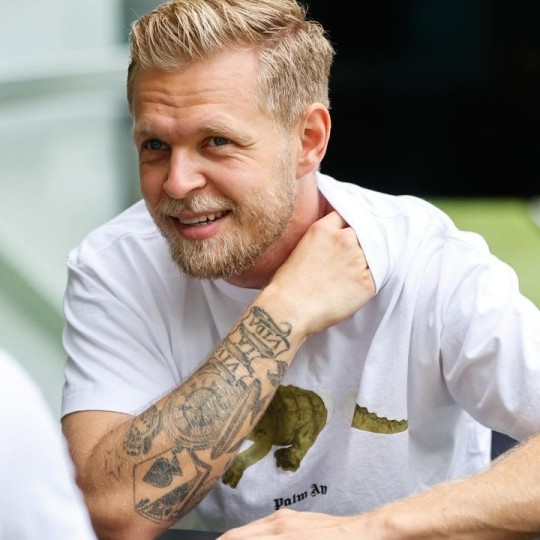
— He just wants to go home after the first hour everyday
— He has shelves dedicated to historical Lego builds
— Has no favourites (" You always let Fred go early. " " Fred is doing the work. ")
Nico Hulkenberg - Cover Teacher
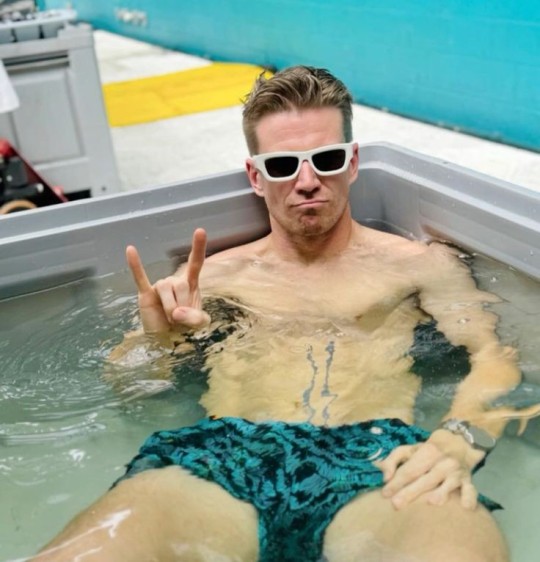
— Laughs at dad jokes that weren't even funny
— Probably wants to apply for a different job but can't
— Dressed up as the hulk for Halloween
Valtteri Bottas - Maths Teacher

— " Guys.. I know you miss Kimi but I'm basically him but, more ass, you know? "
— Bff's with Lewis and Zhou
— Let's the class play blooket every Friday instead of work
Zhou Guanyu - Textiles Teacher
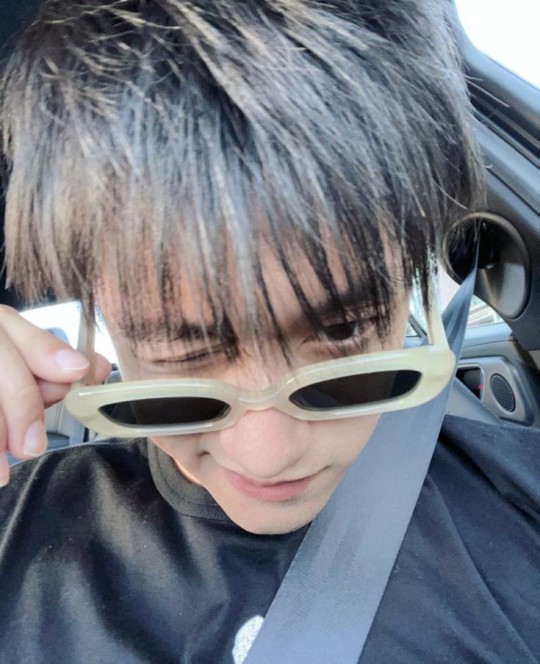
— Voted most fashionable teacher of the year
— Randomly gives out sweets to his favourite students
— Actually puts work into grading
Alex Albon - Science Teacher
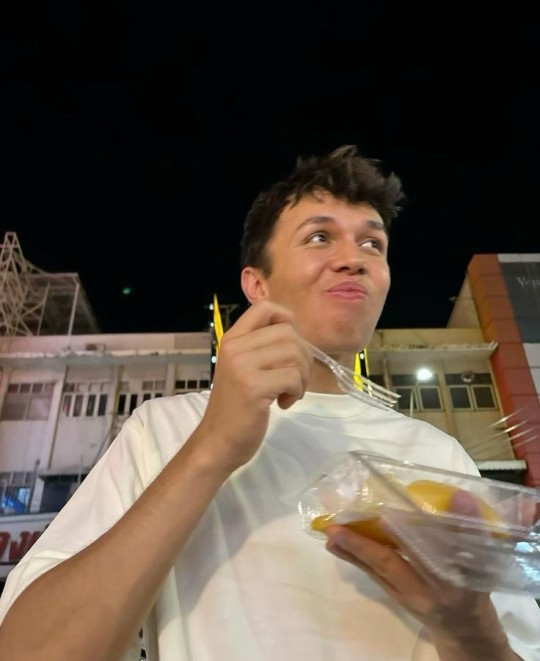
— " Sir, are you dating Mr. Russell? " " I have a girlfriend. " " Show her then!! " " No. "
— Never gives back tests
— Gossips with George and Lando in the hallways
Logan Sargeant - Guidance Counselor/Cover Teacher
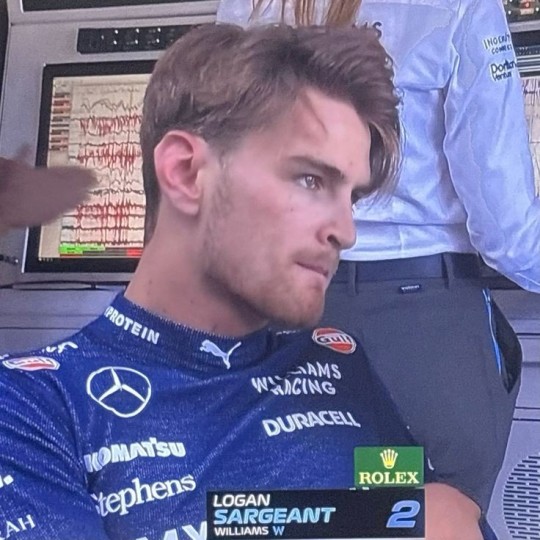
— He needs therapy himself instead of giving students it
— Follows Oscar around like a lost puppy, it's rumoured he's absolutely whipped for Oscar but is too shy to do anything about it
— His favourites edit him and Oscar to 'Lacy' and he can't hear the song anymore without crying
Pierre Gasly - French Teacher #1

— Him and Estaban have BEEF
— stares into your soul when you awnser a question
— " But the other class didn't have to do this! " " That's because Mr. Ocon doesn't want his students to learn proper french. "
Estaban Ocon - French Teacher #2
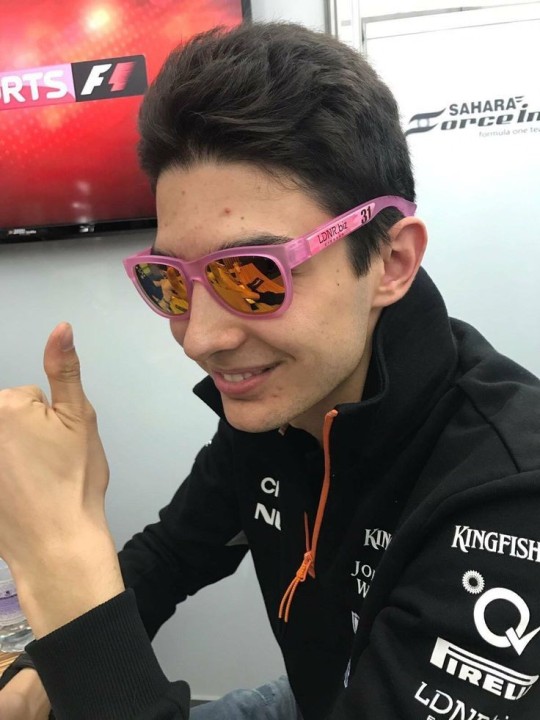
— " I don't understand what I did to Mr. Gasly. " " You snitched on him giving out sweets, sir. " " I don't see the issue. "
— Only talks in french in the lessons
— He himself gives out sweets and such
#formula 1#f1#formula one#racing#red bull racing#red bull f1#red bull formula 1#red bull team#redbull f1#ferrari#ferrari f1#mercedes#mercedes amg petronas#mclaren#mclaren racing#mclaren f1#f1 fandom#f1 imagine#aston martin f1#aston martin#vcarb#visa cashapp rb#visa cashapp racing bulls#moneygram haas f1 team#haas f1 team#stake f1 team#stake sauber#sauber#williams f1#williams racing
96 notes
·
View notes
Text
The Boring CBT Final for the Fun CBT King - By Lexi Moon aka CashAndPrizes
Okay! People asked and I fought tumblr to deliver!
Hi, I'm CashAndPrizes also known as Lexi Moon, and I am a doctoral student studying clinical psychology. I wrote about Redacted (specifically Lasko) for my final for Cognitive Behavioral Therapies. Here's the paper.
Shout out to my beloved friends in the WhoreHome and W.A.R. for keeping me going through this paper. I love you dearly.
Words of warning:
I am a clinician in training. I am still being supervised. I have not been graded on this final yet. (I'll update when I get it!) And I am definitely not an expert. Take everything here with a grain of salt.
I am not a licensed therapist but even if I was I am not your therapist. I'm play acting as Lasko's therapist for a class. Take everything here with a grain of salt. If you read any of this and think "It's a bit loud in here" do not assume this is absolutely you. If you have the means, please try finding your own mental health professionals and if you don't, please do a lot of research on these subjects. Don't use this as a diagnosis please, I'm just a guy.
I filled in a lot of Lasko's backstory based on my experiences with patients and my beloved Lasko kinnies who were instrumental to the writing of this paper. (I won't tag you and call you out, but you know who you are an I love you.) Your headcanons might be different - that's cool. I'm not claiming canon over most of this - but I did use the transcripts and timeline very heavily.
If you don't like the idea of pansexual, transgender, Indo-Caribbean/Trinidadian child of immigrants Lasko - pookie this might not be for you. If that sounds like your jam though - come on in, the water's fine.
Without further ado. Ladies and Gentlemen, this is Mambo Number Five. Here's Lasky. I can, in fact, fix him.
Case Summary
This case conceptualization addresses the hypothetical course of treatment for Lasko Moore, a character in a modern-fantasy audio narrative. Lasko Moore presented to treatment as a 30-year-old pansexual and transgender Indo-Caribbean man working as an administrator and adjunct professor at Dahlia Academy for Magical Novices for persistent anxiety symptoms. Upon intake, Lasko reported experiencing near constant racing thoughts that he was unable to “turn off”, panic attacks, and increased anxiety about social interactions at his work. He described spending a significant amount of mental energy preparing for and reviewing social interactions with colleagues such that he often avoids his colleagues in an effort to minimize his anxiety. Lasko reported that the anticipation around coworker interactions (meetings, socials, etc.) becomes quickly overwhelming as he becomes preoccupied with what he will say and do in an effort to try and minimize his tendency to become hyperverbal and overshare information as well as stuttering. He described this process as starting with embarrassment over previous interactions which leads to critical thoughts like “I shouldn’t be so anxious” which leads to rehearsal of potential outcomes of interactions. However, in the moment of social interactions he becomes so anxious as there “aren’t any objectives [or] any specific roles” to the conversations that he “word vomits” and becomes tangential and overshares until he runs out of breath and stops himself from talking due to his own critical thoughts and begins to isolate himself.
Lasko was initially diagnosed with Panic Disorder (F41.0) and Generalized Anxiety Disorder (F41.1) to capture his persistent anxious state with occasional intense bouts of extreme anxiety and panic. An initial long-term goal was collaboratively set as improving his coping strategies and tolerance of anxious affect to better network and create relationships. As this was Lasko’s first time utilizing mental health services, treatment began with inhibitory learning in combination with Acceptance and Commitment Therapy in order to facilitate willingness to experience interoceptive cues and extinguish avoidance due to fear of negative consequences. This was able to reduce his panic attacks as he felt more able to tolerate overwhelming anxious affect. Despite his clear engagement with treatment through attendance, homework, and skills practice, Lasko continued to struggle with critical thoughts and avoidance of coworkers which he identified as a major barrier to his continued professional development and potential non-academic relationships. Through collaborative exploration, a persistent early maladaptive schema relating to his critical thoughts emerged and treatment shifted to a goal of starting dialogue between schema modes to facilitate the use of coping strategies to build interpersonal effectiveness. Lasko was born as the human-born child of Trinidadian immigrants who moved the southern California in the early 1990s due to political unrest. From an early age Lasko faced high academic expectations from his parents who desired upward mobility for their child and a “piece of the American Dream.” His mother was emotionally labile to the point of explosive outbursts where his father was more passive and spent significant energy working and caring for his wife. This experience started Lasko’s early maladaptive schema regarding rigid standards with no support, which only became worse when Lasko’s elemental powers began developing at thirteen and his parents expected perfect control (and perfect suppression) of his powers with no training and a highly critical environment. This led to Lasko isolating himself at home as much as possible to hide his lack of control but left him with an environment that created a positive feedback loop where his lack of control led to increased yelling and criticism which led to worsening outbursts of his powers. This culminated in a final traumatic event when Lasko was seventeen and lost control of his powers, leading to his mother “calling [him] everything she could think of […] she was so loud and I just wanted her to stop” to the point that Lasko accidentally sucked all of the air out of the room and almost suffocated his mother. Though Lasko was able to find support with the Department of Uniform Magical Practices and become emancipated from his parents, these experiences developed a maladaptive pattern of hypercritical thinking about himself, especially in the context of social relationships.
Research
Avelino Cardoso et al. (2023) pose potential ways to modify and apply Schema Therapy to sexual and gender minorities. This work focuses on understanding how of harmful implicit and explicit messages about gender and sexuality contribute to early maladaptive schemas based on consideration of the minority stress model, and how Schema Therapy interventions can be applied to sexual and gender minorities. One area of particular relevance from this article is the conceptualization of an inner critic mode that specifically represents stereotypes and prejudice that are naturalized by society. When applying these principles to the case of Lasko, the environment of his childhood can be understood as an essential aspect of the treatment. Though Lasko did not present to treatment looking to discuss the impact of his pansexuality and transgender identity, potentially because of the clinician’s own advertised identities, the impacts of systemic oppression against sexual and gender minorities can be woven into treatment for his hypercritical early maladaptive schema. Based on the suggestions of Avelino Cardoso et al. (2023), it may be worth examining his secondary schemas around shame and social isolation as also being shaped by his experience as a gender and sexual minority and how that may contribute to his predominant hypercritical schema.
A major concern for this section of the paper is the lack of research modifying second and third wave cognitive behavioral therapies for sexual and gender minorities. Results for Acceptance and Commitment Therapy with LGBTQ+ individuals only revealed one article about group therapy and a study proposal; results for Schema Therapy with LGBTQ+ individuals only provided Avelino Cardoso et al.’s (2023) theoretical essay. There does not appear to be much research and what research exists is extremely limited with no randomized control trials. This makes it clear that evaluating the efficacy of treatment for sexual and gender minorities is not a priority, which leads to a major critique of Avelino Cardoso et al.’s work. Though the article is useful for considering how to address systemic change in the room, it seems to attribute lived experiences of sexual and gender minorities to a schema rather than ongoing threats in a world where hate crimes and discrimination against LGBTQ+ individuals is on the rise. The abandonment and violence that these individuals may face is not imagined and it can be seen in the lack of interest in research.
ADDRESSING Model
When considering the case of Lasko, it is important to remember that psychology does not develop in the vacuum of individual experiences – psychology develops based on the global environment, which includes the social, political, economic, and cultural contexts as well as individual context. Utilizing Hays (2022) ADDRESSING Model, the impact of Lasko’s intersecting identities can be understood to have a major impact on his current symptom presentation and the development of early maladaptive schemas and schema modes. Lasko was born to first generation immigrants from Trinidad with strong Indo-Caribbean and Catholic roots – and he was assigned female sex at birth. Using a systems-focused lens, Lasko’s current symptoms can also be understood within the larger context of living in a world where several aspects of his identity are under intense scrutiny and political debate. As a child of immigrants and as someone Indo-Caribbean, Lasko likely faced explicit and implicit messages about his intellectual capabilities, his body, and his work ethic. While Lasko directly experienced his mother as extremely critical and never satisfied with his performance, it is just as likely that he received messages as a child about needing to work harder than many of his same aged peers for equal amounts of recognition based on his racial, ethnic, and sex assigned at birth. There is also the element of the disconnect between his sex assigned at birth and his gender presentation, and the messages he received about being transgender from his Catholic, Trinidadian immigrant parents as well as the American culture – which were likely discouraging at best and hostile at worst.
Keeping all of this in mind, Lasko’s hypercritical, social isolated, and emotional deprived schemas can be understood as also being a direct result of the intersection of his identities – and this does not even cover the added layer of being an empowered human-born. In a variety of ways, Lasko has had very different experiences than his peers by virtue of being a transgender, pansexual, child of unempowered human immigrants. When Lasko describes feeling different from the people around him growing up and when he entered the empowered world, this is a real experience based on the multiple identity intersections – it is not hard to believe that he did not have many friends or family members between the late 1990s and late 2000s that had similar experiences to him. This left him with the acute sense that he was fundamentally different and needed to work much harder than those around him, and also that to get validation he needed to sacrifice his needs (or identities) for those of others.
Methodology
The initial treatment approach for Lasko was a combination of Acceptance and Commitment Therapy and inhibitory learning with interoceptive and in vivo exposure, which was successful in decreasing his panic symptoms but not generalized anxiety symptoms. Lasko reported that he experienced sudden panic attacks that seemed random and included symptoms such as accelerated heart rate, tightness in his chest, hyperventilation, feeling that he would lose control, sweaty palms, and loss of control over his magic. At the time of treatment, he reported that he had been having at least one panic attack every other month since he was a teenager and that they would occur more frequently when he was in periods of intense stress. After exploration, Lasko was able to determine that he often had panic attacks related when he spends time ruminating in anticipation of social interactions. Lasko explained that during panic attacks he tends to seek quiet, dark places to hide and “ride out” the panic attack and that he has thoughts like “I’m going to mess this up” or “I can’t do this.”
Treatment started with Acceptance and Commitment Therapy and inhibitory learning as an evidence-based approach for treating panic attacks and generalized anxiety to address his symptoms and reduce further panic attacks as well as his anxious thought patterns (Barlow, 2021; Ruiz et al, 2020). Acceptance and Commitment Therapy (ACT) is a therapeutic practice that focuses on improving psychological flexibility and understanding the function of behavioral patterns (Gordon & Borushok, 2017). Much of early treatment with Lasko consisted of psychoeducation around the therapeutic process, behavioral therapy, and mindfulness. He took easily to ACT and benefited from understanding how avoiding social interactions was negatively reinforced by decreasing his anxiety while keeping him from creating connection. Inhibitory learning through multiple types of exposure (in-vivo and interoceptive) was able to make him more comfortable with feeling panicked, effectively reducing his panic attacks (Ramnero & Törneke, 2008). However, his baseline anxious affect and negative thoughts did not ease despite the use of ACT, so treatment shifted towards understanding the function of his persistent negative thoughts through Schema Therapy.
Lasko’s symptom presentation after several sessions of ACT and inhibitory learning was a persistent anxious affect and worry (especially around social situations) that felt uncontrollable and critical ruminative thoughts. As it seemed treatment had plateaued, the content of sessions moved towards a deeper understanding of his critical thoughts based on an indication of deeply held early maladaptive schemas. Barlow defines early maladaptive schemas as persistent behavioral, cognitive, and relational themes developed in early childhood that are reinforced throughout lifetime and that cause significant disruption and dysfunction (2021). Schemas are often viewed as truths about the self and others and are difficult to challenge because of the deep affective component and lifetime of reinforcement (Barlow, 2021). Movement towards schema work started with psychoeducation which involved discussing how schemas are reinforced through modeling (in this case by his mother’s critical comments about his performance) and how people can often act in ways that reconfirm schemas into adulthood. Lasko then completed the Young Schema Questionnaire - Revised and received high scores on schemas related to emotional deprivation, social isolation, and unrelenting standards (Rijkeboer, 2015). During the debriefing and explanation of the results, Lasko reported that when he was completing the questionnaire he felt “really seen” in a way that was uncomfortable but also validating to his experiences in childhood and as a queer person of color living in America.
The topic of sessions then moved towards further psychoeducation about the process of schema work, including delving into his schemas and determining schema modes with the goal of improving his understanding of schemas and working towards healthier integration of modes and coping strategies (Barlow, 2021). Lasko was committed to treatment but apprehensive about “what would come up,” speaking to his concerns about dredging up uncomfortable memories and feelings. In response, he was encouraged to revisit his understanding of ACT and his core values as a reminder of why he wanted to continue treatment and work through feelings of discomfort and grief. The next session started proper schema work, starting with Lasko explaining his understanding of schemas and how they were currently impacting him. He aptly summarized that his childhood experience of feeling intense pressure to do well academically and conform to socially and religiously defined gender roles left him feeling isolated from his peers and that he always needed to work harder and do more, while also feeling as though he had no support or anyone who truly understood him – this led to the development of schemas related to emotional unrelenting standards, social isolation, and emotional deprivation.
The first step of schema work was to identify schema modes as recommended by Barlow (2021). Lasko completed the Young Schema Mode Inventory (YSMI) as homework (along with his regular thought and feeling records) and scored highly in the following modes: vulnerable child, compliant surrenderer, detached self-soother, punitive parent, and demanding parent (Lobbestael, 2015). With this in mind, the next session started with reviewing his thought and emotion records as a baseline for identifying schema modes. Lasko was able to sort different thoughts and feelings into categories that broadly resembled the categories for child modes, coping modes, and parent modes, but he struggled to come up with names for them. He eventually decided on “Young Lasko” to describe his vulnerable child mode, “The Doormat” to describe his compliant surrenderer mode, and “The Critic” to describe his punitive and demanding parent modes with suggestions from the therapist based on his results on the YSMI. Lasko was overwhelmed with sadness and fear during this session, describing how hard it was to name and admit these schemas out loud and how scared and vulnerable he felt. He reported a heavy weight on his chest and how badly he wanted to hide from the therapist and his own internal experience, and his wavering control over his powers was evident by the rustling of papers in the room. The second half of the session was dedicated to using ACT and mindfulness techniques to sit with the almost intolerable affect without judgement. The session closed with a discussion of how he could focus on his value of self-care after the session and he decided that he had plans to meet with his friend group the next day and try to talk with them about his feelings as a form of self-care and confirming his acceptance in his friend group.
The following session he reported that his conversation with his friend group had gone “really well, better than [he] expected” and the session started by discussing how this did not conform to his expectations as a way to integrate the initial phase of inhibitory learning into the present. The conversation then moved to re-introducing the names for his schema modes and utilizing a combination of mindfulness skills and reaffirmation of his core values to give a voice to those modes and their needs by recommendation of Barlow (2021). Lasko explored that “Little Lasko” felt “awful, awful all the time” and was a sad little boy trapped in a girl’s body who “[held] onto all the bad stuff” including feelings of being completely isolated from others and deep sadness. Lasko further explored that “The Doormat” was a representation of how he had worked so hard in school and at home to make everyone else happy and that by avoiding his own needs and wants (for self-expression, acceptance, nurturance, joy, etc.) he thought he would get his needs met. At this point in treatment, discussing “The Critic” was still too affectively laden so discussion started with the first two with the goal of working up to “The Critic.” Based on guidelines from Barlow (2021), the next few sessions focused on identifying the ways these schemas had developed within his childhood and how they had once been adaptive and essential for his survival. Lasko’s homework between these sessions was to read handouts given by the therapist about schema modes and the ways they are internalized throughout childhood. Lasko was also willing to try journaling once a week from the perspective of either “Little Lasko” or “The Doormat” to better understand how integral they had been to his survival.
Session Description
This transcript describes the first part of the schema work, where Lasko began to identify and label schemas with prompting from the therapist. Rather than just using the terms from the YSMI, Lasko was encouraged to create his own meaning to better represent his own understanding of the schema modes based on evidence-based methods from Barlow (2021). The goal of this session was to help Lasko observe the schema modes based on his thought and feeling record from the previous week and start thinking of the modes as parts of him that were observable separate from himself.
Therapist: You’ve summed up schemas and how they work, and I don’t even have anything else to add. Lasko: I really, um, want to make sure you know I’m serious about this. I want to get better, I want to be better. Therapist: It feels like it’s really important for you to feel like I know how hard you’re working right now. Lasko: Yeah, well… Yeah, I don’t want you to think I’m not doing the work. Therapist: It’s interesting because you’re the one paying for sessions, you know? While I’m glad that we are working together towards your goals, what you get out of this is really up to you. Can we talk more about how you want to make sure I know you’re working hard? I think that’s really tied to this whole schema thing I’m trying to sell you on. Lasko: I’m already sold on it! Therapist: [Hm] Lasko: … That’s… that’s what you mean, isn’t it? Therapist: [Affirmative hm] Lasko: Fuck – sorry – shit! I um… I feel like I need to prove to you that I’m listening and trying really hard. Therapist: What will happen if I think you aren’t trying? Lasko: Well, you won’t take me seriously – at all. You’ll think I’m wasting your time and that I should – I need to be doing more and taking it seriously. Therapist: And how would I be feeling with you? Lasko: Angry, because I’m wasting your time – but I’m not, or I don’t want to. I don’t want to waste your time, you have so many other patients you could be seeing and if I’m not doing what I should be doing then I’m just- I’m taking up space someone else could be using and they probably need it more than me. I mean, I’m fine you know, I’m anxious but I can survive, right? There’re people out there who need your time more than me and I’m wasting it – or I would be. I’m not – I don’t think I’m wasting your time right now except I keep rambling. Therapist: There’s a through-line in there that I want to pull. You feel like you need to do what I expect you to do, right? Lasko: Yeah, I mean you’re the therapist. You’re the expert with – all the experience and degrees. So yeah, I should be doing what you expect. Therapist: It sounds like there’s some part of you that feels like you need to be doing what I say you should do, even if you don’t want to or have something else to say – like your “rambling” – and that if you don’t, you’re wasting my time. Does that feel right?
Lasko: I want to do this, I do. But um, yeah. That feels right. Therapist: And you do what I say you should do because if you don’t…? Lasko: Well I’m wasting your time. And then you’ll – I mean you probably won’t, you’re a really nice person and you’re so helpful but I just… I have this thought that you’ll get mad at me. Therapist: I would be mad at you. What would I do if I was mad at you? Lasko: You would um… Well I know you wouldn’t, because you just – you’re not like that but like my mom would start screaming at me. She would just… she would just yell and tell me that I was wasting their money because I wasn’t doing well enough at the school they paid for me to go to you know? Or I messed up the nice clothes they paid for. Or I just – anything like that really, I was wasting money and time and I was a waste of space and… Fuck – sorry – wait, um. This is hard to talk about and I don’t want to cry. Therapist: This is really hard, I’m really putting you through it already today, aren’t I? Lasko: [Affirmative hm] Therapist: I want to take what you just said and kind of summarize, kind of explain, is that okay? So, it sounds like you have these thoughts that you aren’t trying hard enough – or at least that I don’t think you’re trying hard enough, right? And these thoughts serve to make sure that you show me how hard you’re working so that I believe you, because if I don’t, I might think you’re wasting my time and become angry and yell at you. Lasko: That’s a really succinct way to put it, but yeah. Therapist: So what I think is happening here, is that there’s a part of you that is so terrified that I will become angry and yell at you and make you feel just awful about yourself. And to deal with that, there’s another part of you that works really hard to try and anticipate and meet my needs so I won’t become angry with you. And then there’s also this third part of you, this part that is so critical and reminds you of how scary I could become if I got angry with you and kind of beats me to the punch by being mean first. And all three of these parts were working together in those last few minutes. Lasko: Wow… yeah, that um… you hit the nail right on the head. That feels right. It’s not – um, it’s not really great for me, though. Therapist: What I’d like to do is start by giving a voice to these parts of you, just letting them speak. Do you think we could do that? Lasko: That… That sounds really awful. But, yeah we can… we can do that. Therapist: And here I am, asking you to do these terrible things you don’t want to do and you’re doing them with me anyway. Lasko: That’s the um.. that part of me that tries to meet your needs, right? That’s what you said? Therapist: I think so. I really want to hear more from that part of you.
At this point in the transcript, the therapist was using a combination of techniques to try and get closer to the schemas that were indicated in Lasko’s dialogue. There was a mix of rephrasing/restating what Lasko had said with the dual purpose of making sure the therapist understood and phrasing things in a way that would lead to more dialogue about schemas. The therapist in this section also started outlining the core schema modes operating at the moment in broad terms to gauge Lasko’s ability to tolerate and explore them further with the intention of eventually moving towards labeling schema modes. In this section, it is becoming clear that Lasko’s persistent anxiety about the therapy (proving he is engaged enough) is a result of active schema modes that attempt to anticipate and meet the therapist’s needs to prevent criticism and anger on the part of the therapist. This insight from the conversation can be broadened to potentially explain the utility of Lasko’s critical thoughts and anxiety around social interactions – he spends so much time preparing and planning for these interactions to try and anticipate and meet the needs of others to prevent criticism and anger from his peers, the mere idea of which causes deep feelings of fear and sadness, by criticizing himself first.
Therapist: I think so. I really want to hear more from that part of you. Lasko: I mean – geez, what should I say? Therapist: Maybe we could start with what that feels like…? Lasko: It feels like I’m always guessing, trying to figure it out. I feel like I have to do everything right, try harder, do more…I feel like I always need to be doing more, doing it better. Therapist: What emotions does this part of you have? Lasko: Um, I don’t – I don’t know. Therapist: Do you think I should bring out your old friend the feelings wheel? Lasko: Yeah that might – might help. You know how much I love the wheel. Yeah – um, I guess I feel… inadequate? Maybe… Therapist: Can I suggest something that I’m sensing in you? Lasko: Please, you’re way better at this than me. Therapist: I’m wondering if this part of you feels desperate. Lasko: Yes, desperate. Therapist: Desperate… it feels like there’s more to that. Desperate for what, do you think? Lasko: Desperate… desperate to please – desperate to get it right. Therapist: Wow… desperate to please feels really powerful. I see you rubbing your chest right now, what are you feeling? Lasko: It’s like… my chest feels tight – a little like when I have panic attacks. Therapist: That connection feels really important. What do you make of that? Lasko: I feel – I’ve felt desperate when I’ve had panic attacks before. Like desperate for air, which is just – it’s funny as an air elemental you know, well not funny-funny, but it’s just – anyway, it’s like desperate for air but it’s also like I’m desperate for… I don’t know how to phrase it…? For it to stop, yeah, but also like I… I want to do things right when I talk to people but I always fuck it up – sorry – wait, don’t apologize Lasko. Sorry, I – sorry – fuck. I just- I want to have better interactions with people! I want things to go better and to communicate better so people like me and – I don’t know. Therapist: So people like you… do you think that’s what this part of you wants? Lasko: Yes – so badly… So badly it hurts. Therapist: It hurts in your chest, right there? Lasko: Yeah… it’s tight and heavy and then I start crying because I’m just – I’m a mess. Therapist: You’re feeling so much right now, and you’re doing it because I said we should. Lasko: Well… yeah, it’s um – it sucks but you know better than me. Therapist: That seems to be a thought you have a lot, we’ve talked about it before on your thought and emotion records – and I think it’s really tied to this part of you. Lasko: I mean… maybe, yeah. Therapist: What do you think you could name this part? How do you think we could refer to it? Lasko: Like a name? What kind of name…? Therapist: It’s really up to you, I think it’ll be more helpful to use whatever you think is the best way to describe it rather than my clinical-ese jargon. Lasko: I don’t… I don’t really know. I’m not good at this kind of thing. Can’t you – you can just name it, right? Therapist: I could, but I feel like if I name it we’re staying in this pattern where you just acquiesce to my demands. Lasko: Which is like – the whole point of this, yeah. Therapist: Exactly. What feels hard about thinking of a name? Lasko: I don’t – I don’t want to pick some stupid name that I have to use, and you’ll think “wow that was a really stupid name choice, I should have picked it.” Therapist: [Hm] Lasko: Yeah, you don’t have to say anything, I hear it. Also, I just… naming it feels so real, you know? Then it’s a real thing. Therapist: And there’s something about it being “a real thing” then? Lasko: Then I’d… I’d have to talk about – acknowledging all of it – that feels really awful. I feel like I can’t breathe right now. Therapist: I can feel the air becoming thin too. Why don’t we take a few moments and just notice how you’re feeling and breathe through it?
This section of the transcript starts to explore and move towards labeling the schema mode of the Compliant Surrenderer. This mode attempts to anticipate and meet the needs of his hypercritical Punitive and Demanding Parent mode to protect his Vulnerable Child mode, which becomes clear in the transcript as he verbalizes that this part of himself is desperate to do well (whatever that may look like) so that others will like him. Just sitting with this part of himself causes Lasko almost intolerable feelings of desperation and panic, likely due to his fear of his Punitive and Demanding Parent mode as well as a fear of criticism and rejection from the therapist.
Closing Thoughts
I really enjoyed this case and this paper. While I didn't choose a current patient, I feel that I got a lot out of this assignment. It was really interesting to think formally about a character and work through a treatment plan and focus on a specific element of treatment. I managed to pick a case where I got to implement schema therapy, which is one of the forms of CBT that I find most interesting in addition to ACT. Despite this being a fictional character, I have certainly had previous patients who have similar struggles – and I also felt that I was able to use the media (and my previous experience to fill in gaps) to make the most of this assignment for my learning.
As I was working on this case, it occurred to me that though I felt like I was able to portray this character as accurately as possible I felt like so much was missing or unaccounted for. Because I was working from a CBT rather than psychodynamic lens, I felt like there were clear points where I would have ideally worked more relationally to address resistance or spoken more about the therapeutic relationship. There are always a million different things you could pick out of a patient’s response to respond to, and it was challenging to focus more on the schemas rather than talk about the relationship. I also felt like because of the limits of this paper, I did not have enough space to talk in the methodology or transcript session about how I felt his identities played a part in the development of his schemas. In this example, it was very clear to me that Lasko’s experiences of his parents were only part of the equation as development does not exist in a vacuum – there is a reality that his identity as a pansexual, transgender, Indo-Caribbean, second-generation immigrant and his experiences of xenophobia, racism, heterosexism, and transphobia would have also impacted his feelings of isolation/difference from others and internalized pressure to present and perform well. I also think that this would have been something I discussed in subsequent sessions as I believe this is another function of his schemas – to protect and prepare himself from his experiences of a hostile, sometimes violent world.
References
Avelino Cardoso, B. L., Paim, K., Figueiredo Catelan, R., & Liebross, E. H. (2023). Minority stress and the inner critic/oppressive sociocultural schema mode among sexual and gender minorities. Current Psychology, 42(23), 19991–19999. https://doi.org/10.1007/s12144-022-03086-y
Barlow, D. H. (2021). Clinical handbook of psychological disorders: a step-by-step treatment manual. Sixth edition. New York, The Guilford Press.
Hays, P. A. (2022). Addressing Cultural Complexities in Counseling and Clinical Practice: An Intersectional Approach. Fourth edition. Washington DC: American Psychological Association.
Lobbestael, J. (2015). Validation of the Schema Mode Inventory. In M. van Vreeswijk, J. Broersen, & M. Nadort (Eds.), The Wiley‐Blackwell Handbook of Schema Therapy: Theory, Research, and Practice (pp. 541–552). Wiley-Blackwell.
Ramnero, J., & Törneke, N. (2008). ABCs of human behavior: Behavioral principles for the practicing clinician. Oakland, CA: New Harbinger & Reno, NV: Context Press.
Rijkeboer, Marleen (2015). Validation of the Young Schema Questionnaire. In M. van Vreeswijk, J. Broersen, & M. Nadort (Eds.), The Wiley‐Blackwell Handbook of Schema Therapy: Theory, Research, and Practice (pp. 531-540). Wiley-Blackwell.
Ruiz, F. J., Luciano, C., Flórez, C. L., Suárez-Falcón, J. C., & Cardona-Betancourt, V. (2020). A multiple-baseline evaluation of acceptance and commitment therapy focused on repetitive negative thinking for comorbid generalized anxiety disorder and depression. Frontiers in Psychology, 11. https://doi.org/10.3389/fpsyg.2020.00356
Home. (n.d.). Redacted Audio. Retrieved May 5, 2024, from https://redacted-audio.com/
Appendix
Character and Media Primer
Redacted Audio is an urban-fantasy audio narrative on YouTube that centers around the fictional city of Dahlia in southern California and its inhabitants (“Home”, n.d.). In this urban-fantasy world, people are separated into four categories: unempowered humans; empowered humans, which can be further broken down into elementals and energetics (people with control over the four elements, gravity, sound waves, magnetics, psychokinesis, telepathy, seers, or a jack of all trades) and shifters (e.g.: werewolves); vampires, who are turned unempowered or empowered humans that feed on blood to survive, have superhuman speed and senses, and cannot go out in the sun; and demons, beings of pure magic that are not necessarily evil or good. The character I have chosen is an empowered human who was born to unempowered human parents – a human-born – which is a rare kind of person who often faces discrimination and barriers to learning how to control their magic. Lasko is an administrator and adjunct faculty member at the Dahlia Academy of Magical Novices, which is essentially magical community college where students (of any age) can learn mastery over either their specialty or all aspects of empowered human magic. The Dahlia Academy of Magical Novices operates as a school under the larger Department of Uniform Magical Practices, which oversees magical practices, ethics, and maintains the covert status of magic. Lasko specifically has natural control over the element of air, giving him an increased lung capacity and control over air (making wind currents, taking air out of the room, making tornados, etc. – think air benders in Avatar: The Last Airbender if you are familiar), but chose to complete his full certification at The Dahlia Academy of Magical Novices to have a better understanding of all types of magic. He teaches an introductory class on magic for incoming students as a way to provide a less discriminatory experience for other human born students.
ACT Hexaflex
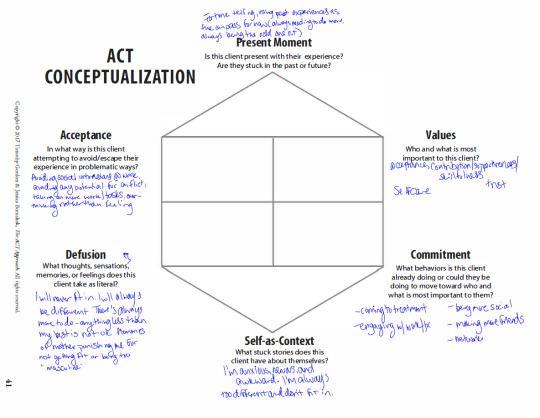
YSQ-R Table
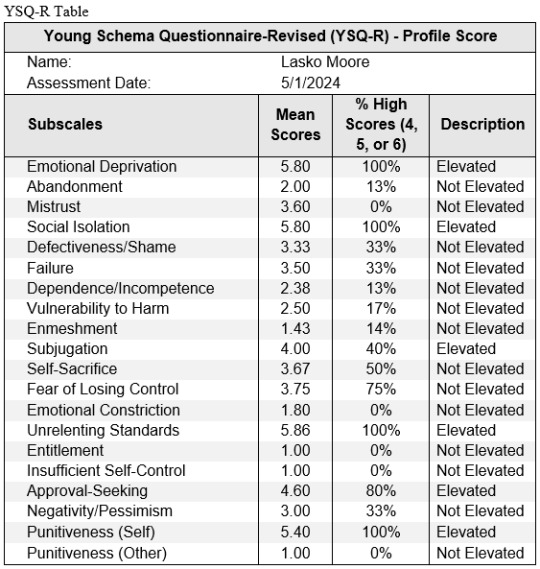
YSMI Table
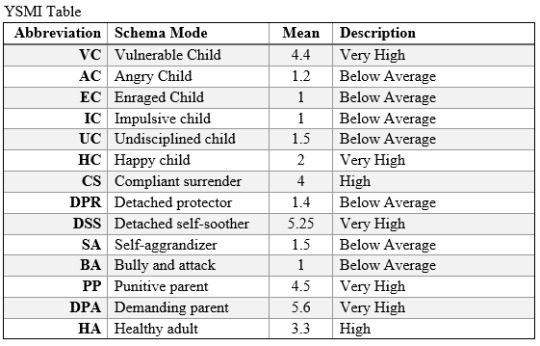
That's all, folks!
58 notes
·
View notes
Text


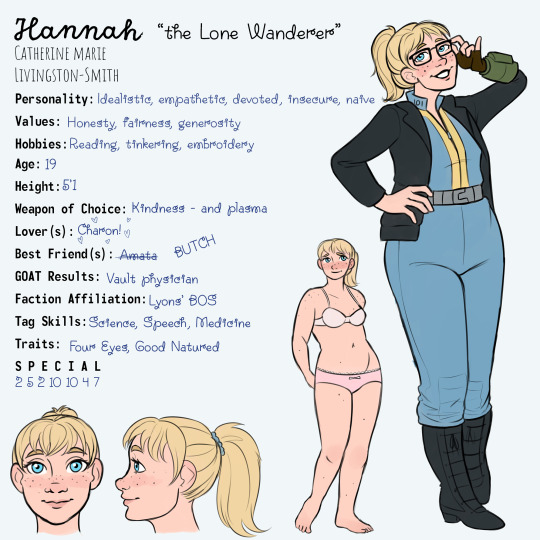
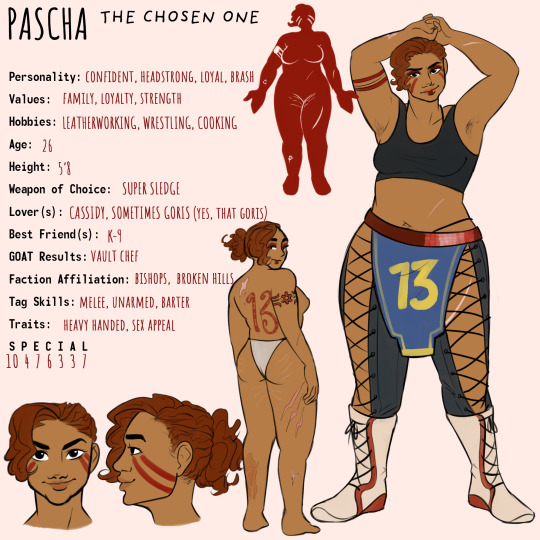

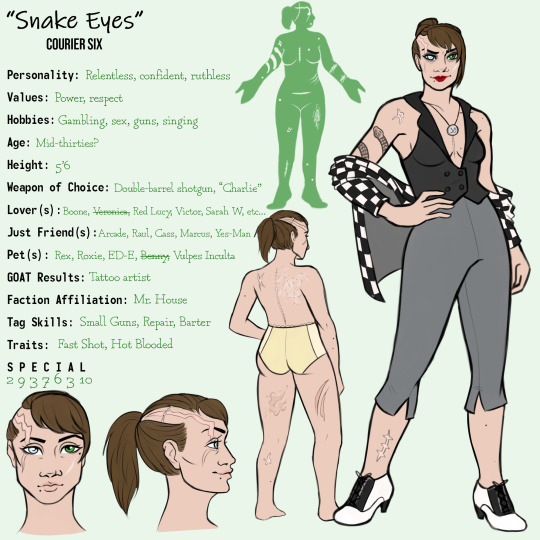
reference sheets for some of my Fallout ocs! may add more of them later, but for now these guys are my main faves :)
Bios under the cut
Baron: A Pre-War pilot in the US Air Force. He met @sawyingthroughthewasteland 's Sole, Sawyer, while at a Navy officer school. After being shot down over Alaska he signed up for an experimental 'super soldier' program and frozen. The freeze was only meant to last one month, but that was before the bombs fell.
200 years later, the Enclave finds him in one of their labs, unfreezes him, and takes him to Raven Rock to perform experiments on him. Then, when Hannah happened to Raven Rock, he fled to the Brotherhood of Steel. 10 years after that, the BoS sends an envoy to the Commonwealth to find out what happened to the Prydwen - turns out, Sawyer happened. Reunited once again, Baron leaves the BoS and marries Sawyer. These days, he pilots for the Minutemen.
Dee: Born to a nuclear physicist and a Nobel prize winning biochemist, three years after being sealed in Vault 76 along with some of the most brilliant minds in America. Unfortunately, as Dee grew it turned out she wasn't brilliant - at least, not compared to her peers, the genius children and prodigies in her Vault classes. Her parents had high hopes for her, even naming her after the Hindu concept of 'dharma,' but she rebelled against expectation at every opportunity. She despised her know-it-all peers, her overbearing family, and the shit attitudes of every privileged asshole in the Vault. The Wasteland and everyone in it turned out to be much more fun.
Hannah: Ever since she was a baby, Hannah was the sweetest person you'd have ever met. (We don't talk about the toddler years.) Her father raised her Christian like her mother, but her innate sense of right and wrong always overpowered her respect for rules, God, or the Overseer - and that got her into trouble. When the Overseer made a poor choice, hurt anyone, or even said anything unkind, Hannah made sure to let him know. Many people saw her as a troublemaker for that reason - especially Butch, who hated that she always tattled on him. But she was the apple of her father's eye, and she was just as intelligent and gifted in both science and medicine as him. This served her well in the Wasteland. She's a pacifist, a paragon of virtue, and yet the Wasteland has done its damnedest to break her. Someday, it'll succeed, but her friends will do their best to delay it.
Pascha: From birth, Pascha was told she was the Chosen One. Her grandmother passed when she was young, but she knew she had big shoes to fill. Luckily, that suited Pascha (or Paz, to her pals) just fine. She always liked the power and respect. That's not to say she didn't do plenty to earn it - she was never one to sit still. She was constantly improving herself, waiting for the day she got to prove that she really was the Chosen One. Once that day came, she was eager to be a hero; but it turned out that while being a legend came naturally, acting like a hero just wasn't her style.
Peggy: Raised in a big family on a brahmin farm near Redding, but a woman with more pre-War sensibilities, Peggy left home shortly after her beloved father was conscripted into the NCRA and sent to the Mojave front. She enlisted to follow him; although she had no combat skills whatsoever, it was discovered that she had a rare and unique skillset that made her an excellent... secretary! She maneuvered to get assigned as Colonel Hsu's personal aide, hoping to leverage her position to get her father sent back home, but her father isn't the only man she ends up caring for.
Snake Eyes: Six isn't sure who she used to be before, but she doesn't particularly care. Fueled by vengeance and greed, Six kills, pays off and betrays whoever she needs to in the service of Mr. House, all in the interest of enjoying the luxury, power and respect that comes with the job. She isn't always proud of what she's done, especially to her friends, but the caps, chems and sex that she's paid in helps keep her numb to herself while the Mojave languishes around her. She goes by Six, but most people call her Snake Eyes, owing to perhaps her one scarred eye, her capacity for betrayal, or maybe her supernatural luck. That said, only the very stupid or the very brave will call her that to her face.
#my art#fallout ocs#fallout#fallout oc#oc art#oc: baron#oc: dee#oc: hannah#oc: pascha#oc: peggy#oc: snake eyes#courier six#chosen one#lone wanderer#vault dweller#f76#f4#f3#fnv#f2
77 notes
·
View notes
Text
so i have this document where i work on ways to make UA focused solely towards making heroes and nothing else, so i cut out all the actual school stuff and make it just basically a school that trains kids to be heroes.
This is gonna be a long post so read on if your interested.
idk what to call this so im calling it a AU i guess. In this AU UA works with hands on training, they work by do instead of showing cause UA believes the students progress faster in field work.
First let's tackle the sports festival first - that was a publicity stunt especially with the whole stadium setting this really screws UA students over when they take their license exam + everyone got to see them including villains who tune in and probably will remember these students and quirks for future reference. Lets make U.A.'s Sports Festival more meaningful and focused on training and growth, rather than just an entertainment spectacle.
Lets call it the Hero Evaluation and this is the Proving Grounds – A place for students to prove their skills, resilience, and readiness for the hero world.
Now lets talk about what exactly the Hero Evaluation (Sports festival) is supposed to teach the kids lets not have it broadcasted cause that makes them look like their only in it for publicity - lets emphasize aspects of what it's supposed to teach the students shift the focus away from publicity and entertainment reinforce it as a vital part of their development.
I'm repurposing the sports festival as a private event soley for UA's staff & Pro Heroes to evaluate students - no longer a public event taking the place of the olympics for people to enjoy.
-Remove the public broadcast element entirely, make it a closed event for U.A. staff and Hero agencies, focusing purely on the students development and growth, pushing the students to exceed their limits in a controlled environment.
-rank the students on how they do but instead of rankings of flashy demonstrations, the focus would be on how much the students learn, how they improve, and what they take away from the experience.
-Include more team-based events, force them to think, maybe work together but don’t tell them outright. These challenges would focus on strategy, cooperation, and quirk synergy, work with others to solve complex problems if they can't do it alone but don't tell them any of this maybe? just hint it at them cause if their instructors told them everything how would they learn? every instructor is different and UA lets it's teachers teach the students however they see fit no doubt every classes teacher would be supervising their own classes.
Exposure to Real Consequences of Battle
- teach students about the potential consequences of failure or poor decision-making in battle. have a simulated "rescue operation" to force them to make quick decisions where lives are semi at stake. This would underscore the importance of thinking carefully under pressure and how mistakes can have dire consequences. Rather than it being purely about competition, these types of exercises can teach them the gravity of things.
-Rather than pure combat, some stages of the exercise could be structured like actual hero missions, where students are given objectives such as rescuing civilians, defeating villains, or neutralizing threats. These missions would teach the students how to apply their skills in the real world. Of course a first year isn't going to go about this the right way on the first time but this will help evaluate where they are for the staff, teachers and pro heroes.
-also have a focus on problem-solving, quirk control, and resourcefulness in the field.
Personalized Feedback from Pro Heroes
-After each event, students could receive direct feedback from Pro Heroes attending, who would act more like judges. The purpose would be to help them reflect on their performance, learn from their mistakes, and grow as heroes.
-Heroes could take a more active role in the students development during the event, offering training tips and personalized guidance based on their performance if they desire to.
-Maybe have a couple of high ranking heroes and their teachers (like Aizawa) watch them to make sure the kids don't accidentally k!ll each other or themselves. And the pros watch to rank them see which one's they think are successful enough to take on when they graduate.
Safety Protocols
Pro Heroes and Teachers like Aizawa, Midnight, and others would actively monitor the students during the event to prevent accidents or life-threatening injuries. Students must still push their limits, but with safety nets of sort in place. They have the authority to intervene in extreme situations like a student seriously injuring another one (about to on purpose or on accident) This highlight responsible.
Evaluation by High-Ranking Pro Heroes
i said throughout the event have some pro heroes attending or specially invited - top Pro Heroes like Endeavor, Hawks, and others would be present if they want to be there to see the students so they can pick out the ones they might like, not only as spectators but as evaluators. They would watch closely to assess the students potential, growth, creativity, and ability to handle real-life hero duties.
-Some pros are invited some can just attend if they want to but there has to be some kind of max number of pros visiting at a time.
-these heroes would evaluate which students have the best skill sets, strategic thinking, emotional maturity whatever they are looking for to use on the field. The evaluations could determine which students they might want to take on as interns or future sidekicks when they graduate. Heroes would be judging the students not just on their combat abilities but on their overall potential in this profession.
They would look at factors like:
Quirk mastery: How well do students understand and control their quirks, can they do it under stress?
Teamwork: How well do they work with others when the situation demands cooperation?
Strategic thinking: Do they adapt to challenges and opponents, or rely solely on brute strength?
Hero ethics and responsibility: Do they prioritize saving lives and minimizing damage, or are they reckless?
I think it would be good for other students who aren’t participating to watch with the pros. The emphasis should be on preparing students for real-world hero work.
Graduation and skill based advancement
-Based on their performance during the event, students could be offered future internships or pathways to early graduation (3rd years only for early graduation) with specific heroes. Heroes would essentially scout the students they see as ready for professional work after graduation, offering them chances to prove themselves further. This replaces the public spectacle of hero agencies scouting students based on showy performance. Instead, Pros who witnessed their growth firsthand would provide opportunities for internships, mentorship, or even sidekick roles.
Long-Term Tracking and Progression
-The event could be part of a longer-term evaluation where students are tracked over multiple years. Pro Heroes might continue to check in on students they are interested in, watching their progression from year to year and offering more advanced challenges as they grow.
Alright i think im done talking about the rewritten sports festival lets talk about UA as a whole. rewriting the UA school system to be focused soley on teaching students to be heroes.
i kinda wanna leave the support course in cause i like it but i would take the business course out and make that a completely different school nothing against it just feel like this could be a whole school all on it's own.
Rewriting UA
lots of field tests and sparring matches, im taking the entire normal school stuff out and making it only teaching them what they need to know. - if you wanted to learn about normal school subjects you should have went to a normal school we don't teach english and stuff like that cause theres no reason for you to be learning art and stuff like that maybe keep math to some degree and learning a new language cause these are important
-They can still be taught things in the classroom and tested on things that could happen and things they actually need to know.
Their teachers could give them test or task based on their strengths and weaknesses, give them targeted advice on how to improve their quirks, combat abilities, strategies ect.
-Incorporate real world missions for the students, not just training exercises or simulations. could range from low-stakes task (bodyguarding, retrieving items, or recon, - cause they are probably gonna be doing a lot of recon) to more serious ones as they advance. One teacher or a 3rd year are gonna be present to make sure everything turns out right.
-Focus on tactical and strategic learning. There could be a heavier focus on strategic thinking and tactical combat. Instructors could teach students how to analyze their opponents' quirks, adapt strategies on the fly, and make the most of their surroundings. This could be done through exercises that are designed to test their ability to outthink their enemies, teach them to outmaneuver and strategize during battle. HENCE I SAY AGAIN sparing matches good
-I said field tests are a thing so frequent field tests (almost daily)
-students spar against one another in controlled and uncontrolled environments depending on the area. Sometimes their teacher or a 3rd year or two 2nd years could watch or they could be instructed to do their training alone.
-Have classes that reinforce teamwork, battle strategy, problem-solving then they have to go on out in the real world and see how what they learned works on almost a daily basis
Rank the task, like rank S-A-B? students starting at lower-risk task gradually taking on more dangerous tasks as they develop.
-on some of the first few days of going to this school have it scaled in difficulty from - low stakes things to high-stakes things like:
Low-stakes task - recon, bodyguard duties, item retrieval.
High-stakes task - hostage rescue, villain apprehension.
-have task rankings by difficulty (like SS, S, A, B, etc sonic scoreboard type thing lol) students starting on lower-risks and gradually advancing as they develop their skills.
Skill-based advancement where students progress to the next level of training only when they've demonstrated mastery of specific skills, similar to earning belts in martial arts having evaluation milestones.
Evaluation Milestones -UA could implement some kind of milestone tests, assessing quirk mastery, teamwork, strategic decision making ect before allowing students to take on more dangerous task or graduate to the next training level.
Mentorship by Senior Students (3rd-Year Leads)
This is why i keep saying a 3rd year is present.
I have no idea if it's that UA doesn’t have a lot of teachers (or it does and we've only seen a handful of them) so why not have 3rd years in charge of first year and 2nd years? a mixed group of them all.
-small teams led by 3rd-year students. Each team consists of - One 3rd-year mentor who leads a group - One 2nd-year student and Two 1st-year students this teaches them leadership/team management while teaching younger students stuff too.
-Teachers monitor these teams, intervening if necessary and providing guidance when they see fit but otherwise letting the 3rd year lead them so they can learn skills like managing a hero team which leads to what pro heroes have to deal with while managing an agency.
-The 3rd years can get advice from their teachers but ultimately it's up to them on how to lead their group, i don't know if this is something they can decline because if they wanna be a pro they'll have to learn about managing groups.
#bnha#my hero academia#bnha headcannons#mha headcanons#rewriting UA structure#UA#ua high school#your welcome to improve on this if you want to
31 notes
·
View notes
Text
⋆ ˚。⋆ Always ⋆ ˚。⋆
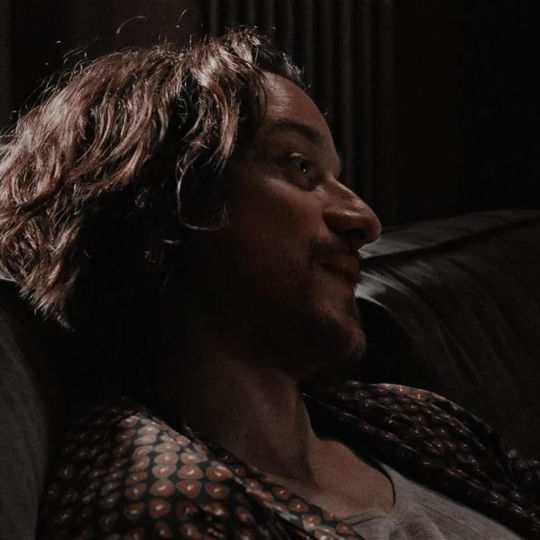
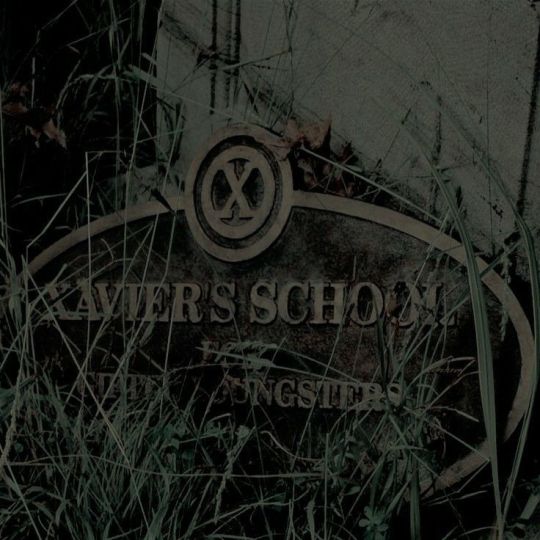
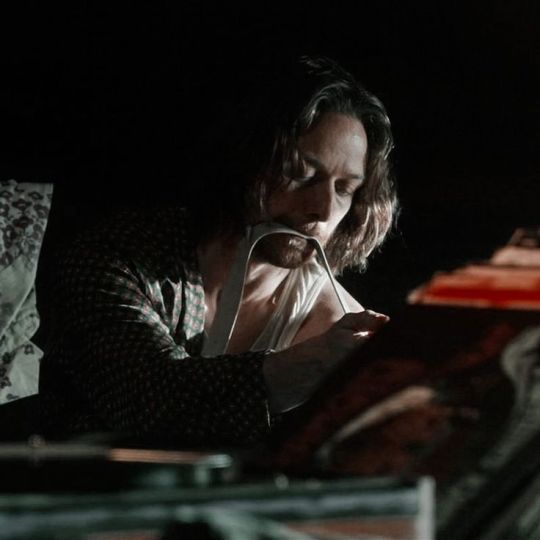

prompt: "If you won't take care of yourself, I will."┆Tuna-Tober ⊹ Day 5
pairing: dofp!Charles Xavier x fem!Reader
wordcount: 2.4K
warnings: mentions of alcohol and drug use, angst, broken Charles
author's note: So I’ve missed two days now… I really did intend to stick to the one story per day, but my week so far has been busy with work and college, and I think I’m getting sick so I haven’t been as willing to write when I go home. But I have the day off Friday, so I’m going to try and crank out at least the next two prompts (Day 7 & 8) just to kind of catch up a little bit. Anyway, hope you enjoy!
˖ ᡣ𐭩 ⊹ 𝘯𝘢𝘷𝘪𝘨𝘢𝘵𝘪𝘰𝘯 ˖ ᡣ𐭩 ⊹ 𝘵𝘶𝘯𝘢-𝘵𝘰𝘣𝘦𝘳 𝘱𝘳𝘰𝘮𝘱𝘵𝘴 ˖ ᡣ𐭩 ⊹

It’s been hard, the past few years. Leaving everything behind and traveling to a new country is never easy. However, he encouraged me to do so. After Cuba, I received an offer from Oxford University to take up Charles’ old position when he left to start Xavier’s School for Gifted Youngsters. He said it would be a great opportunity for me and seeing how he acted with Moira, I thought getting away for a while would be the best decision for the two of us.
I grew up living next to Charles and going to school with him and Raven. I met Charles in school when we were young. We were in a science class when my mutation developed, going over the parts of a plant and its inner workings when I could feel the teacher’s poor plant crying out to me in hunger. Mrs. Duvall hadn’t been watering it regularly and the pain I felt from the plant was agonizing.
I lost control, the plant rapidly growing as its vines stretched up the walls and ceiling of the classroom, encircling Mrs. Duvall and the other students before I could hear another voice in my head. It was Charles Xavier, he had introduced himself. I needed to calm my mind and relax before any more damage could be done. I was able to find his bright blue eyes from across the room and it helped me calm down. Since then, Charles has been my only true friend, no one after that day willing to interact with the “freaky plant girl.” And after he found Raven in his kitchen that one, fateful night, the three of us have been like family to each other.
As we grew older, though, and we all moved to London-Charles and I for Oxford, Raven just to be close to us-I found myself falling for Charles’ boyish charms. His confidence, for one, was unlike anything I had seen in a man. Not only was his ability powerful and he knew how to control it, he was incredibly smart and used that for good. His research and interests opened new possibilities for him as a professor and intellectual mind.
I had gone to Oxford for similar reasons, but mainly for research on mutations, like Charles, but also to research plant biology. What I learned in my studies helped unlock new aspects of my mutation. I can grow almost any plant imaginable, as well as experiment with creating my own. I can create deadly poisons and toxins that are beautiful to the human eye.
After graduating, I decided I’d start my own path and travel the world discovering all there is to offer in my mutation and help those in need. I traveled to impoverished regions of the world and helped their farmers grow all kinds of produce and food for the people. I taught them how to find the best soils, the best fertilizers, and quickly, these places saw improvement in their hunger and trade.
I continued this until one day, while I was in a secluded corner of the world helping someone recover their diseased crops, I felt an itch against my mind. I immediately knew it was Charles, my old friend I hadn’t seen in who knows how long. The brief, but most welcome contact brought a smile to my face despite the confusion of my students. And within days, he was there, with his cerulean blue eyes and smug smirk on his face, asking me to join him on his recent mission. How could I say no to him ever?
So I followed him to D.C., right into the CIA compound labeled as Division X where I reunited with Raven and met the other mutant recruits, as well as agent Moira MacTaggert. My feelings for Charles seemed to return the longer we were together. I followed him on his missions, my mutation and knowledge of it coming in handy at times. I got to know Erik Lehnsherr, who noticed my predicament quite early and secretly teased me, earning more whips from my vines than gentleness.
But I saw how Charles looked at Moira and listened to his flirtatious comments. She was beautiful and had a brilliant mind, so open to the discovery of mutants and welcoming to us all. Erik tried to tell me differently, Raven, too. But I knew what I was seeing. If he was into me how I was him, why would he be making advances on Moira?
Then the fight on that beach in Cuba happened so fast. Erik throwing out Charles’ plan and declaring his own war against humanity. The bullet piercing Charles’ spine, leaving him paralyzed. And Raven taking Erik’s hand in the end and disappearing. There was no going back to the way things were.
After we returned to the mansion in New York, Charles and I started making plans to open our own school for the children with mutations who had nowhere else to go. A place they could come to have a normal education while learning how to control their abilities. Moira helped, too, which I will forever be grateful for. A human willing to risk their career to help those who have previously tried to harm her. But she also helped Charles. The lingering touches, the niceties exchanged in hushed tones.
When it all became too much, my heart breaking more and more as I watched them around the mansion, I applied for the open position at Oxford. I didn’t mean to keep it secret, but I genuinely forgot about it, not thinking I’d get the job. But when a letter came in the mail, wheeled in on Charles’ lap, the guilt washed over me.
He smiled at me, bright and genuine as he handed the envelope over and watched me open it. I remember a hand flying to my mouth in utter shock as I read the acceptance letter. I remember the warmth of Charles’ arms around my frame as I fell into his embrace, laughing along with me. I remember the completely genuine words of encouragement he said to me, telling me to pursue this opportunity and go to Oxford.
Within the week, I was flying to London with my life packed back to Oxford and saying goodbyes to my remaining friends. Charles promised we’d call each week to recount our days. This only lasted the first few months before the calls started becoming nonexistent. I tried to visit as often as I could in the beginning, too. I’d fly over and surprise Charles at his new school, visit with some of his students, then return to London to continue my research and lectures. But work for both of us started piling up and never gave way for me to visit again. I wrote occasionally, hoping to hear from him, or even Hank, but never did.
Soon, the years started to go by. I missed him. I tried dating to occupy myself when work allowed me, but no one ever lived up to my memories of Charles. I watched the broadcasts of President Kennedy the day he was assassinated, catching a glimpse of what looked like Erik, and tried calling the mansion again with no luck. My concern continued to build and build until I was given a week's vacation time for my contributions at Oxford and booked the first flight to New York.
Now, as I follow the familiar roads to the Xavier mansion, I notice the front gate in shambles, like no one has been living there for some time now. I have to get out of my car to open the gates and let myself in. It’s evident that the maintenance of the mansion has been lacking as the drive up to the house has become somewhat overgrown. The fountain out front has dried up and started cracking in places and vines and hedges have started overtaking the front of the mansion, which is covered in dirt and moss from mismanagement.
I walk up to the doors of what I used to call home and knock on the hardwood. I hear silence as time passes. I knock again and this time I can barely make out what sounds like running. The door jiggles as someone from inside unlocks it and cracks it open. Hank’s face appears, lacking his signature blue fur and pointed canines.
“Y/N?” Hank asked, shock covering his features. “W-what are you doing here? I thought you were at Oxford?”
“I was- Am,” I say. “I got an extended vacation and thought I’d visit, since it’s been a while.”
I try to look past him into the foyer of the mansion, seeing nothing but darkness. “What happened?”
Empathy clouds his eyes. “Look, it’s not a good time right now. I’m sorry.”
“Where’s Charles?” I question as my nerves set on high alert. “What happened to the school?”
“He’s- he’s resting right now.” Hank adjusts his stance, blocking my gaze from looking inside.
“Resting? Is something wrong?” I frantically search his face to find something that will answer my questions.
“It’s really not a good time-” I cut him off.
“Hank, if you don’t let me in right now, I’ll string you up to the roof.”
I push past him, probably shoving a little harder than necessary. I thought I’d never see the mansion in the state it’s in, one of disarray and time long passed.
“Where’s Charles?” I demand from Hank. “I need to see him.”
“He’s upstairs, but-”
I don’t stay long enough to hear the rest of his sentence. I race up the stairs, checking each room I pass as I go. Soon I stopped at what used to be my room when I would stay over. Clothes, empty whiskey bottles, glasses, and trash covers the room. More concerningly, syringes are scattered across the nightstand next to the unkempt bed. Lying on top of the blankets is the body of the man I called my friend.
I take in the state of him. His hair grew longer, reaching his shoulders and looking like it hasn’t been washed in days. His once clean-shaven face is full with a beard in desperate need of a shave. His once bright and energetic blue eyes now stare at the ceiling in a dull daze. He’s dressed in a ratted robe, stained t-shirt, and pajama pants, something I never would have expected to see him in. One of his arms is lying next to him bare of the robe and an elastic band tied around his bicep, a used syringe discarded next to him.
“Charles…” I whisper, tears forming in my eyes at the sight of my friend broken.
His head snaps to the side to look at me finally, confusion then realization crossing over his face.
“Y/N…”
I rush to his side, quickly working to undo the band around his arm and moving the syringe. Then I take his hand, his other reaching out to touch my face in disbelief.
“You’re here,” Charles whispers shakily, tears quickly falling from his eyes.
My other hand wipes the tears falling as he caresses my cheek. “I’m here, Charles.”
We sit there in silence for a while before he decides to sit up. I helped him, also noticing him using his legs.
“Charles, your legs,” I gasp.
He sighs, what looks like shame forming in his eyes.
“What happened, Charles?” I move so he can swing his legs over the side before wrapping him in my arms once more.
“It all became too much,” he whispered into my shoulder. “It was all too much. I couldn’t shut them out.”
He told me about opening the school after I left. About the success he saw in that time. He told me about the building war and U.S. relations in Vietnam, how students, teachers, and staff were getting drafted exponentially more than anyone else in the vicinity. How everytime he used Cerebro, all he could see were mutant men and children drafted getting killed on the battlefield. The toll it took on him and his control of his abilities. He told me how it became overwhelming, the voices and pain in his head when he finally lost control. He told me about the serum Hank created to help him block out the pain and how it canceled out his powers, but gave him back his legs.
By the end, he was breaking down in my arms and I latched myself to him. One hand found its way to his hair, combing through the long tendrils as the other rubbing up and down his back. His sobs wrecked through me, pulling tears from my own eyes.
After a while, his sobs quieted, but he didn’t let go. If anything, his hold on me seemed to tighten, almost like he’s afraid to let go.
“I’m so sorry, Charles,” I whisper into the side of his head, pressing a gentle kiss there.
He pulls back to look me in the eyes, his eyes glistening with relief. “I’m- I’m happy you’re here. But I…” He pauses, swallowing on words unsaid.
“It’s alright, I’m here now.” I smooth his hair back from his face, feeling him slightly lean into the touch. “Let me take care of you.”
His brows scrunch together, eyes closing. He starts to pull away, shaking his head. “No, it’s fine. I-I’m fine.”
I sigh, reaching for his hands again. “Charles, respectfully, if you won’t take care of yourself, I will.”
With that, I led him into the familiar en suite bathroom, setting him down on the toilet and grabbing the brush on the sink counter. I stand between Charles’ legs and his hands come up to the sides of my thighs. Gently, I work the brush through his hair, hitting more knots than I expected, but working them out as softly as I can.
Once the knots have disappeared and Charles’ face has begun to relax, I set my hands on both sides of his face, tilting it up so he’s looking at me.
“There’s some things we still need to talk about,” I begin, rubbing my thumb along his cheek. “But I want you to know that I am here for you. For whatever you need, Charles.”
I lean down and press a kiss to his hairline, feeling him slightly squeeze his hands still on my thighs.
“Thank you,” He whispers, finally smiling slightly.
“I’ll always be here.”
#tuna tober 2024#tuna tober prompt challenge 2024#thecoffeeshop#xmen#xmen imagine#xmen x reader#charles xavier#charles xavier imagine#charles xavier x reader
50 notes
·
View notes
Text

Hey 👋🏻 it's been a while... It feels like a lot of things have been going on, irl and in my head, and I needed to get away from social media to collect my thoughts. I'm seriously considering transferring university. It will be a more rigorous program and further from home (longer commute 😭), but when I think of it objectively, it will broaden my future options, which is ultimately what I want. But based on past experience, there are two issues that are likely to crop up:
I'm really awful at juggling many responsibilities at once (and my current threshold for "many" is very low...e.g. i take the minimum number of courses needed to be considered a full-time student at my current uni). The juggling act consistently overwhelms me and the overwhelm scares me. So far, I've been fortunate enough to be able to organize my life around this, but it's just made my fear of potentially overwhelming situations greater and it has cost me many a good opportunity. So I really do want to get better at this since I can't continue on like this and live the life I want to. It seems that this ability to juggle many responsibilities at once without feeling overwhelmed, overstimulated, or anxious, improves with practice (exposure therapy!) and good energy/time management, so that's what I'm going to attempt to do in the coming months before I actually apply 🙈
I'm quite the homebody, always have been, but lately it's been getting more severe, so I'm sure the lonelier/FOMO-filled, bigger university setting and culture will be quite an adjustment for me (and I already felt the frustration of FOMO and was quite lonely at my current uni, especially in my first year 😬). When the time comes, I'll need to expand my sources of comfort (e.g. settle into new favorite study spots and routine walks between classes) and hold onto current sources of comfort I can engage in or reasonably bring with me to uni (e.g. a homemade lunch, journal, perhaps a small stuffie for a study buddy, noticing and appreciating nature 🌿, wearing soft and cozy clothes/clothes that make me feel confident).
#lol look at me posting my posts in the wrong order#advice for future me#advice for present me#studyblr#studyblr community#study advice#life advice#study tips#studyspo#study motivation#life update#100dop#uniblr#student life#med studyblr#chaotic academia#study blog#pink aesthetic#mental health#mental wellbeing#mental wellness#lifeblr#uni life#studystudy#studystudystudy#astudentslifebuoy#heydilli#heyfrithams#100 days of productivity#100 days of studying
49 notes
·
View notes
Text
"The idea of mothering and procreation morphed into Gorky’s fascination with prisoner transformation and perekovka. The labor camp would be the mother of a new working class. Both god-building and the maternal impulse dovetailed with the author’s largest philosophical and intellectual preoccupation: human fashioning. Whether it was the literal, biological creation of the human by the maternal womb or the transformation afforded by a personal journey or individual greatness, Gorky remained intrigued by the individual’s ability for creation, journey, and self-discovery. Maintaining that humans were inherently malleable and eternally improvable, he believed in the potential for endless refinement through diligent effort.
Gorky’s special relationship to the Belomor project allows for an understanding of his career as a symbolic representation of the ideals promoted at the camp. Gorky was a staunch enthusiast of prisoner labor and even predicted the possibility of a waterway similar to Belomor in his early works; in the April 1917 issue of his journal New Life (Novaia zhizn’) he writes
Imagine, for example, that in the interest of the development of industry, we build the Riga-Kherson canal to connect the Baltic Sea with the Black Sea […] and so instead of sending a million people to their deaths, we send a part of them to work on what is necessary for the country and its people.
Gorky’s condoning of Gulag camps such as Solovki and Belomor seems paradoxical to many scholars in light of his humanitarian endeavors, and some speculate either that Gorky was ignorant of the full extent of Stalin’s butchery or that he was aware, but was in a position that necessitated acquiescence to safeguard his well-being. When viewed in the context of his philosophical outlook on literature and labor, however, his support of prison camps seems not like an aberration but rather a natural extension of his belief in violent re-birth, a belief related to Marxist-Leninist ideology and the concept of god-building. Gorky sees people and language alike in the framework of craftsmanship. Perhaps his mistake was not so much his general support of Gulag projects, but his belief that human flesh can be formed like words on a page or cement in a factory. Gorky, after all, cared more about the craft than people themselves; in his 1928 essay “On How I Learned to Write” (O tom, kak ia uchilsia pisat’), he claimed that “the history of human labor and creation is far more interesting and meaningful than the history of mankind.” Gorky was key to the canal project because his philosophical interests exemplify the very core of Belomor: the violent transformation of people through creative acts.
Technology’s magic demonstrated humans’ usurpation of God in a tangible way, with the ever-widening capacity to harness and transform the natural environment showcasing the potential of man-made machines. Soviet pilots were imagined as literal incarnations of the New Man, and the massive expansion of the Soviet aviation industry in the mid 1920s provided some of the most concrete evidence of human superiority over the divine. Short voyages known as “air baptisms” (vozdushnye kreshcheniia) supposedly eradicated peasants’ belief in God while highlighting the majesty of Red aviation. In such “agit-flights,” pilots would take Orthodox believers into the skies and show them that they held no celestial beings. Those who participated in the flights would narrate their experiences to neighboring villagers, describing “what lies beyond the darkened clouds.” This phrase served as the title of a 1925 essay by Viktor Shklovskii in which a village elder embarks upon a conversional agit-flight that he later recounts to his fellow peasants. Six years later, Shklovskii participated in the writers’ collective that coauthored the now infamous monograph History of the Construction of the White Sea-Baltic Canal, in which a different, often deadly, type of technological program offered the promise of conversion. In both instances, darkness will be overcome by the enlightening potential of socialist rationalism: aviation will liberate the peasants from their ignorant beliefs, just as labor will supposedly bring the Belomor prisoners to the light of Soviet ideology. Such endeavors occurred before the backdrop of a larger civilizing project, since both the rural reaches of peasant villages and the wild expanses of untouched Karelia necessitated modernization.
Yet could such projects ever be completed? Did the New Man really exist, and could his creation ever be achieved? The messianic vision of Soviet socialism necessitated that paradise lie always just out of reach.
Similarly, Nietzsche posits the development into the Übermensch as a perennially elusive goal; like the Faustian concept of striving, the individual is forever trying to perfect oneself without necessarily ever achieving perfection. This constant yearning renders the present as the future, as the purpose of today is necessarily the reward of tomorrow. In the Soviet Union, the regime assured people that the difficulties they endured were required in order to reach the svetloe budushchee (radiant future), a utopia found at the end of an interminable road. In the absence of an end result or final destination, the voyage itself becomes the site of cultural exploration."
- Julie Draskoczy, Belomor: Criminality and Creativity in Stalin’s Gulag. Boston: Academic Studies Press, 2014. p 30-32
#maxim gorky#new man#belomorkanal#belomor#gulag#white sea baltic canal#Беломо́рско-Балти́йский кана́л#prison camp#work camp#soviet history#soviet union#stalinism#academic quote#reading 2024#history of crime and punishment#perekovka#russian revolution#soviet communism
35 notes
·
View notes
Text
Sector V autism headcanons: their experiences with diagnosis and school
Nigel also does not mask and had very obvious autism as a kid, but because of how he acted out in targeted ways, he was labeled a troublemaker instead and diagnosed with ODD. He got less support in school because of this, but he did have some resource classroom time. His parents were the core of his support and advocated for him. Nigel saw a lot of specialists as a kid and that's where his distrust of doctors comes from, as most of them wouldn't take him seriously. His autism does eventually get diagnosed in middle school, but if he had more of a say he probably wouldn't have sought a diagnosis
I know I've said a lot of this before but Allow Me To Infodump
Kuki and Wally are a category of their own because they are the highest support needs of the group (medium support needs). They were both diagnosed really young, and started having serious behavioral problems early too. Wally in particular is demand avoidant, but both struggled with meltdowns. In school, they spent part of their day in a separate setting/ resource classrooms. Their academics lagged well behind their peers. As they grew up, Kuki started to mask more and more but Wally is never able to. Kukis academics improved sooner than Wally's did- Wally was barely able to graduate high school on time. He didn't find strategies that worked for him until halfway through his undergrad years. Both of them are AuDHD
Hoagie and Abby are also similar to each other in that they're both double gifted and didn't have IEPs in school. They both appeared to have it together, so they didn't get any support when they actually needed it. They didn't know how to ask for help. Abby in particular put a lot of pressure on herself to appear perfect.
Abby is a high-masking autistic person who needs a lot of rest and space away from people to recover. She absolutely is never officially diagnosed, but she's self diagnosed. She suffers from burnout frequently, but is good at hiding it.
Hoagie actually has huge deficits in certain academic areas that they don't have a special interest in, but because they excell in other places, teachers assume it's because hoagie is just being unfocused and lazy. They have learned that they can do better in subjects like English and History if they study/write about topics they ARE interested in. But they still struggle tremendously if they have to, for example, read a book for English class that isn't interesting to them.
Hoagie gets diagnosed as an adult. Its like super obvious that they're autistic for their entire life, but their parents are definitely also undiagnosed autistic, so they saw how their kids behaved and thought "yep, seems normal!"
In general, I imagine when they went to school was in the 2000s, which is when I was also in school- special education programs were better than they used to be, but not as good as they can be now. And now, it still hugely varies from school to school. I don't think resources were very good for kids at Gallagher Elementary, since we see the teachers be terrible to their students and belittle kids who struggle academically or behaviorally.
21 notes
·
View notes
Text
A critical look into Mimic's acting and improv skills: Part 1
Ah... Mimic the Octopus. Suspected to be a bullied theater kid now grown adult with unnecessary grudges around teenagers and a terrible habit of leaving all his team mates to get violently massacred. He hates rhymes, confrontations with authority figures, and people in general. With the power to shapeshift into whoever he chooses, voice and clothes included, he is able to trick nearly everyone into believing he is someone he is not.
However... this despised shapeshifter may need to brush up on some of his acting skills or learn to do more personality research as some of his acting choices are... well rather goofy when you think about them.
There are little hints that he may have taken an acting class or two (I mean- his whole gimmick is that he can mimic) because one thing we can clearly see him do is a neutral acting stance whenever he is in character:


Or something similar to one. Where your feet are directly under your shoulders and you stand in a neutral position, no acting with your hands or feet, so your hands are to your sides or out of sight. This might be more similar to an at ease position for a soldier which he and Whisper used to technically be. And Lanolin is not afraid to remind Whisper in her PTSD lunge at Duo. Anger at Lano aside- this is where we start to see Mimic's first issue with his acting.
Acting Problem #1: Can't stop smiling

As a former theater kid, I used to have this problem (and probably still do- its been a couple years since I took classes or been in anything) and I was called out on it a lot. So it's not like I can't relate to the problem. But since theater teachers used to call me out on it, I'm calling him out on it.
Mimic is a very smiley guy. He used to crack a lot of jokes and smile a lot around his friends. He also does this when he is feeling smug or nervous.

It happens a lot when people are acting, so he can somewhat get a pass.
Acting Problem #2: Not doing a lot research on people he pretends to be

Now this one surprisingly doesn't get him in trouble. Because on multiple occasions, Mimic has just kind of picked a person to imitate and has proven to know very little about the current person and do something out of character or very generic. Now him imitating Whisper and speaking out loud can maybe get a pass as he knew Whisper before her trauma when she didn't speak like her namesake.

But with Sonic and other people...?



Acting Problem #3: Not even trying
At some point, he just seems to get sick of acting and just...

Well, he makes a choice. And that choice is usually, "Nope."



He also always kind of chooses to fall back on sort of... generic, semi pathetic reactions like wincing or crying (which crying on command is an impressive skill, buuuut even he looks to struggle with it a little).





One thing he is good at doing is pretending to be pathetic. We see this a lot- and I mean A LOT with Duo. Even just straight up telling people he can't/couldn't do anything in certain situations.



He says "woe is me" so much, he almost is trying to emphasize that he's pathetic or useless. Which could be that's how he views the people of the restoration (or the person he based his look on). Or it could be that he thinks if he acts pathetic enough, there's no way anyone can tell he's Mimic because clearly he wouldn't be so pathetic, right?


(these are not the best examples, but you get the gyst...)

Now... Mimic isn't necessarily a terrible actor- you can still get fooled by him at first. But it's clear he has some biases and little habits that an acting teacher might say, "I think you could do a lot better if you didn't do those." Or, "I think you need to do a little more research and try to relate from personal experience."
This is only part 1 as he also has some more habits like outright telling people what he's doing/what he did or breaking character. I'm pretty sure there's more I didn't pick up on either. So stay tuned for part 2 whenever I get around to it.
20 notes
·
View notes
Text
Headcanons about when the Pevensie siblings returned to England (the first time)
When they came back to England through the wardrobe and they returned to their younger bodies, naturally all the scars they received in Narnia disappeared. All but one, the one in on Edmund’s stomach remained, the one he got at his first battle. No one really knew why he still had it, why it hadn’t disappeared it just didn’t. It was there and it served as a constant reminder of the white witch, that the experience had been real.
Everyone noticed a change in the Pevensies when they came back from the countryside. That included their teachers.
Lucy was suddenly a very clever girl, not that she hadn’t been before, but now she had a maturity to her. Her reading ability had improved immensely and she wrote the most beautiful poems.
Edmund’s demeanour had turned a whole 180°. He was more strategic, less rash. It was way more difficult to make him mad, he usually just responded with a witty comeback. And he seemed to put more effort into his work. He had always been smart, but now he was outstanding. He passed all his classes with ease, except for history that is (he kept forgetting that they had never had a king named Frank). He had also gotten very much better at chess, there was no one in the whole school they could beat him, not even the English teacher Mr. Evenly that had gotten very far in the English championship in chess. (Let’s pretend that exists even if it doesn’t)
Susan stood straighter and had a more regal look to her demeanour, not in a way that she expected everyone to obey her or anything like that. It was just very difficult not to respect her. She had gotten very good at resolving conflicts and avoid violence.
Peter had also changed a lot, he was more mature but also more rash in his decisions. He started acting more with his fists (that didn’t really start until it had been about half a year). He did write amazing novels though, stories about battles. Battles with medieval methods and weapons. The details were incredible, it was almost as he’d been in the battles himself.
They all had gotten a whole lot better at swimming. Edmund managed to save a man double his size and weight when he went through the ice. Lucy was always very fast and her technique was like nothing teachers had seen before, it was like she had been taught by a fish. (Possibly mermaid or nymph of some kind.)(Same goes for the others, I just can’t really come up with something)
All of them had nightmares but they had also become very good at controlling and hiding certain emotions behind a curtain or wall.
Edmund often got panic attacks during the cold months, especially when it snowed. Susan started making him something warm to drink every time she noticed it was getting colder or she saw snow falling before school, Peter wrapped up and cuddled Edmund in blankets and Lucy just came into his room with her warm smile and sat and talked with him. With time he wasn’t as sensitive to cold and snow and the panic attacks died down but the small rituals of the siblings having this cosy bonding time with one another continued for a lot longer.
And through all of this Helen was an amazing mother, she might not know what the change in her children was caused by but she always helped. Through panic attacks and frantic studying, she held them after nightmares and she just kept being their mother. She was their mum and raised that just as good as Narnia had.
Hope it was to your enjoyment <3
#Narnia#edmund pevensie#peter pevensie#susan pevensie#lucy pevensie#headcannons#mr tumnus#Helen Pevensie#England#the pevensies#the return to England#Diggory Kirk#professor Kirk#chess#Edmund pevensie is my favourite#shh don’t tell anyone#narnia headcanon
234 notes
·
View notes
Text
Buckle up, this is going to be a long post⬇
Thinking about the unbridled chaos that would have been Hunter if he had gone to public school with Luz during they're time in the human realm
Would it have made sense for him to suddenly go to school, him the guy whose only previous experience with public education is an undercover afternoon at Hexside, a completely different realm where he didn't even attend class? No, it wouldn't have made any sense whatsoever.
But just imagine it. That you're a student at Luz's school and one day the weird girl who let loose a bunch of snakes in the school shows up with her "cousin from Sweden". This mysterious 16 year old dude with a facial scar who is an absolute beast in gym class whose got even the P.E. teacher speechless.
This guy who has a glare that makes even the seniors shudder and think twice about saying anything about the Noceda girl, and the one time the bully didn't take a hint and keep his mouth shut, and actually tired to take a swing at the guy, doesn't land a single hit because the Swedish dude breaks out some kind of Spider-Man moves and back flips out of the way and the bully ends up punching the locker instead and breaks his hand, and Swedish dude just goes "you would have broken your hand anyway with the way you were making a fist" whilst causally flicking a speck of dust of his shoulder.
He always spends his lunch period outside, and a cardinal shows up everyday without fail to join him. He's either having what appears to be an intense one sided conversation with said cardinal, or the bird is casually nesting in his hair while he reads a book and eats his lunch.
It turns out that all the teachers love him. The home ec teacher is so impressed with his sewing that she doesn't even mind that he nearly blew up the oven while they were making cookies. The math teacher loves him because he's apparently also a math whizz who can do college level problems. The P.E teacher is trying to recruit him for at least three different sports teams. The drama teacher loves him because He's a natural at acting and doing improv. He's always the first one to class, takes the most notes, he's super respectful to the teachers, reminds the teachers about homework, does extra assignment work for fun. This dude who is wicked smart and sarcastic, and witty almost all the time, and then raises his hand in history class and asks "What's a Spain?" With the most sincere expression.
Just imagine that
#the owl house#hunter noceda#hunter deamonne#toh hunter#luz noceda#toh luz#luz and hunter are siblings#we were robbed#this would have been so funny#i'll never be over him#hunter my beloved#bonus points if you got that reference
116 notes
·
View notes
Note
ask game for fanfic writers: 7. tell us about the plot of the first fanfic you ever wrote (that you remember). OR 11. what’s something neat you’ve learned while doing research for something you were writing? also, how much do you worry about doing research in general? (yeah, I just want to listen to an infodump)
hi!!!!! lmao confession, the time lapse between when you posted that ask game and when i reblogged it from you was me keeping it open in a tab trying to send you an ask, like a polite person. but sending asks is, like watching television, one of those things that ought to be straightforward but which i find astonishingly difficult for no clear reason. so while cleaning out my tabs i just lowered my standards and reblogged it.
7. oh, this is a funny one actually! so this was around two years before i learned fic was a thing, so i'm in like the sixth or seventh grade. i had this really inexplicably intense dream about spiderman. i woke up and it stuck with me, you know.
so i was like, well loads of people write stories about spiderman, i don't need permission, i'll write it down and then it will leave me alone.
naturally i forgot over half the dream before i finished getting it down. but the plot definitely involved being stuck to the ceiling due to inexplicable spider-powers and a very strained conversation with spiderman on one of those external cornices you get on the fancier class of brownstone. i think whatever OC i was inhabiting was mad about spiderman existing and he was increasingly fed up with me being insane, but trying to be patient.
ig there was no plot. strictly speaking.
11. gonna answer these in reverse order.
so first, there's two classes of research for fic, as far as i'm concerned, probably because i spent too long in comics. there's general knowledge about real things, and then there's finding the correct reference points within the canon you're working from.
the first one i'm not that intense about. sometimes there's a thing i really have to Get Right so i go looking, or i'll commit to including something and then need to go read up for verisimilitude, but i generally do not get into the deep factfinding tunnels people talk about.
because i enjoy the process of learning and the process of writing, but i tend to find it very stressful to suspend the act of writing in order to pursue knowledge, so that particular constellation makes both experiences worse. so i'm more likely to redirect the story around a knowledge roadblock so i can keep moving, than really dig in to break through it, and i'm very willing to go 'okay that'll work' and return to the story if i do break for research.
rather than try to track down That One Datapoint, if i'm writing fic that requires or would benefit from knowledge of [subject], i will tend to do general reading on that subject, and then let my improved background knowledge and store of Fun Facts shape where i go with the story.
this is more fun and more likely to come in handy for other purposes later, and the writing result tends to be more natural. same approach with original fiction.
with the kind of research designed to get my fic latched into canon correctly, on the other hand, i keep trying to be more casual about this, especially for fandoms where the canon material is a hot mess, but i also keep regretting that attempt. because it lets me get a fic actually started rather than bogged down in preliminaries, but then i reach a certain point and get frustrated that this is a good fic except it didn't bother to be chronologically coherent and now it's too late.
i didn't write any ffvii fic until i'd played through the original game and taken notes, and i definitely don't regret that!
now, cool things i've found out...the first one I think of, i stumbled across an unexpected gem while browsing to brainstorm night hunt ideas for mdzs fic.
turns out one of the many many many many many archaic chinese words for ghoulies and ghosties, for which it's very unclear what the specific differences between one term and another were in any given usage, is wangxiang. translations proposed include both 'mountain spirits' and 'water demons,' but it's definitely some sort of supernatural entity, and an unfriendly one.
there's a semi-major plot point in the book where, when they were teens, Lan Wangji named a song he'd composed Wangxian, which is also their portmanteau shipname. which by his standards was a romantic declaration. but Wei Wuxian passed out, and didn't actually hear him say it. so whether it would have worked as a romantic declaration remains unclear lmao. lan wangji refuses to tell him again later.
i think a very funny element for an AU would be if he only almost passed out, and just went away believing the song was named 'wangxiang,' which sounds very similar and is a word he's reasonably likely to have relatively high in his lexicon on account of their job is monster hunting and his education is distinctly monster slanted, and was just like, 'what a creepy name for such a pretty song?? lan zhan is so weird lol.'
bonus misunderstanding points if he said it was creepy but didn't explain why and Lan Wangji was like i have been brutally rejected 😢
you aren't actually in that fandom though, so this feels like a lame answer. uhhhh.
for my Earth-3 fics when I put mirror Dick Grayson through a recovery/redemption arc and he was laying low in Europe to avoid both Bruce and Slade ('With Tongue of Wood'), i basically stuck a pin in the map and spun a dial in my head and was like he's in...Romania...working in a...bakery.
so then i had to take a hiatus to research Romanian bakeries and it turns out Romanian cuisine is in possession of many fantastic varieties of fancy pastry, and i want to eat them. it's been what, seven years? but still. curse of knowledge. there are delicious pastries in romania.
13 notes
·
View notes
Note
Not Aware AU exactly but kinda tangential. I always toyed with this idea of "Kagami was transferred into Adrien's class when she joined the school."
This could be in S2, or be because Tomoe saw Adrien was attending school and she's got those later season machinations & sends Kagami to make sure he's not snagged by a gold digger.
(In the former case its just in S2, while in the latter it starts after Princess Fragrance.)
This was fine and fun at first, but Kagami is more willing to start shit with Chloe & much less patient with Adrien's continued softness.
Plus, Adrien can't really explain why he's fond of Chloe cos its a mixture between he can't imagine his life without her (Sibling coded) & stuff like, "She was there for me when mom disappeared & got me into school".
This leads to her at some point losing her patience and dragging both off to a classroom and basically saying "Either she needs to improve or you need to drop her, because this cannot go on."
You'd expect it to be a two on one but Adrien's efforts to play peacemaker lead to Kagami arguing with him as well.
Then when one of Chloe's major blows lands hard against Adrien, "Our parents harm more people every day than I do in a year and you still love them, hypocrites!"
It does nothing to Kagami, because she doesn't love her mother, she respects her, obeys her and fears her wrath but she doesn't love her even a little and she assumed Adrien was the same.
He is not the same & is in fact kind of defensive of his father at such a blatant rejection of one's own family and how uncomfortable it makes him.
It basically descends from there, cos I love slow burns but sometimes its just like, "Hmm what if they all started screaming their issues that they do not realize are issues at the top of their lungs?"
None of these kids know therapy talk so their languages on it is already going to be shit even before we remember literally not a one of them has much in the way of healthy communication or good social skills outside of formal events so:
So you have Chloe defending stuff like destroying Roses' letter because "That's how Mama handles it when I give her bad gifts, she's telling me to do better and one day I'll get it right!" As well as "Why would Papa want to see me when he doesn't need me for something? He's not a lunatic control freak like your parents."
Then you have Adrien defending stuff like, "I know my dads cold and has impossible standards and barely lets me do anything I want but he is protective and just wants what's best for me!" & "My mom was always kind to me, she was perfect even if she never let me go out or have a birthday either!"
& Kagami defending Tomoe with, "It doesn't matter how I feel about Adrien, or my instructions, I act as I do because it is for the good of my family. My emotions, my life don't matter at all before that duty!"
So its just three incredibly fucked up abused kids steadily airing each others and their own families laundry list of abusive traits and experiences under the pretext of saying "No my family is normal & OK yours is the bad one" and "How dare you call 'that' bad, when your parent does this!"
(Also Chloe may think Gabriel killed Emilie or otherwise would rather have Adrien sealed in amber forever than as an actual living boy,)
With this continuing until it either gets physical or they basically collapse.
Meanwhile the class is just watching in mounting horror and disgust and discomfort. (Nino is likely especially pissed) Like even with Chloe it may not justify her behavior but it puts so much of it in a new deeply messed up context where it kind of makes sense she doesn't even know how to be nice.
To quote a friend of mine:
The rich kids have taken knives to each other. They've cut open their festering wounds. The rot is exposed, scrubbed raw. While they lie angry, bleeding, crying, and dying [inside], they have the opportunity to look upon themselves once more and apply new dressings.
I can see it, but unless Gabriel is ACTUALLY out of the country, all three get Akumatized. My thoughts are a weird mix Grimm Brothers Fairytales - Cinderella, Snow White, Hansel & Gretel, etc. Not in specific, but like. More fairytale tropes?
Adrien is the "Cinderella"-style. Rapunzel, Snow White-style, "One Day My Prince Will Come"-style. The type of character that has to sacrifice and sacrifice, and will eventually be rewarded. If he does one more photo shoot, one more public appearance, *scrubs one more floor*, his father will finally love him. He'll finally have the happy ending he wants. He just has to stick it out - cause his dad DOES love him, right? (As a possession, if at all.)
Chloé is more of the "Trials"-style. Complete this mission-style. Knit twelve sweaters from nettles, and your brothers will become human again. Find the right goose, and get set free. Defeat the evil witch, and the spell is broken. If Chloé tries hard enough, does and says the right things, her parents will love her, show her affection. She'll finally be worth something. (All of it performative and shallow, until they raise the bar to another impossible height. Always keeping her dependant on them.)
Kagami, weirdly, I see as more endurance, or contract style - like a flipped version of Adrien. She isn’t really trying to "change" her situation the way Chloé or Adrien are, (for value of "trying to change it", ie, playing along with their parents games because that’s all they know to do) she's accepted this is the way it is, and is simply trying to endure it. Go through the motions. Hold up your end of the bargain. Work within the bonds of your deal, to do as little harm as you can, while still fulfilling your end. One day, you'll be out. You'll be free. (As if her mother will ever set her free.)
30 notes
·
View notes